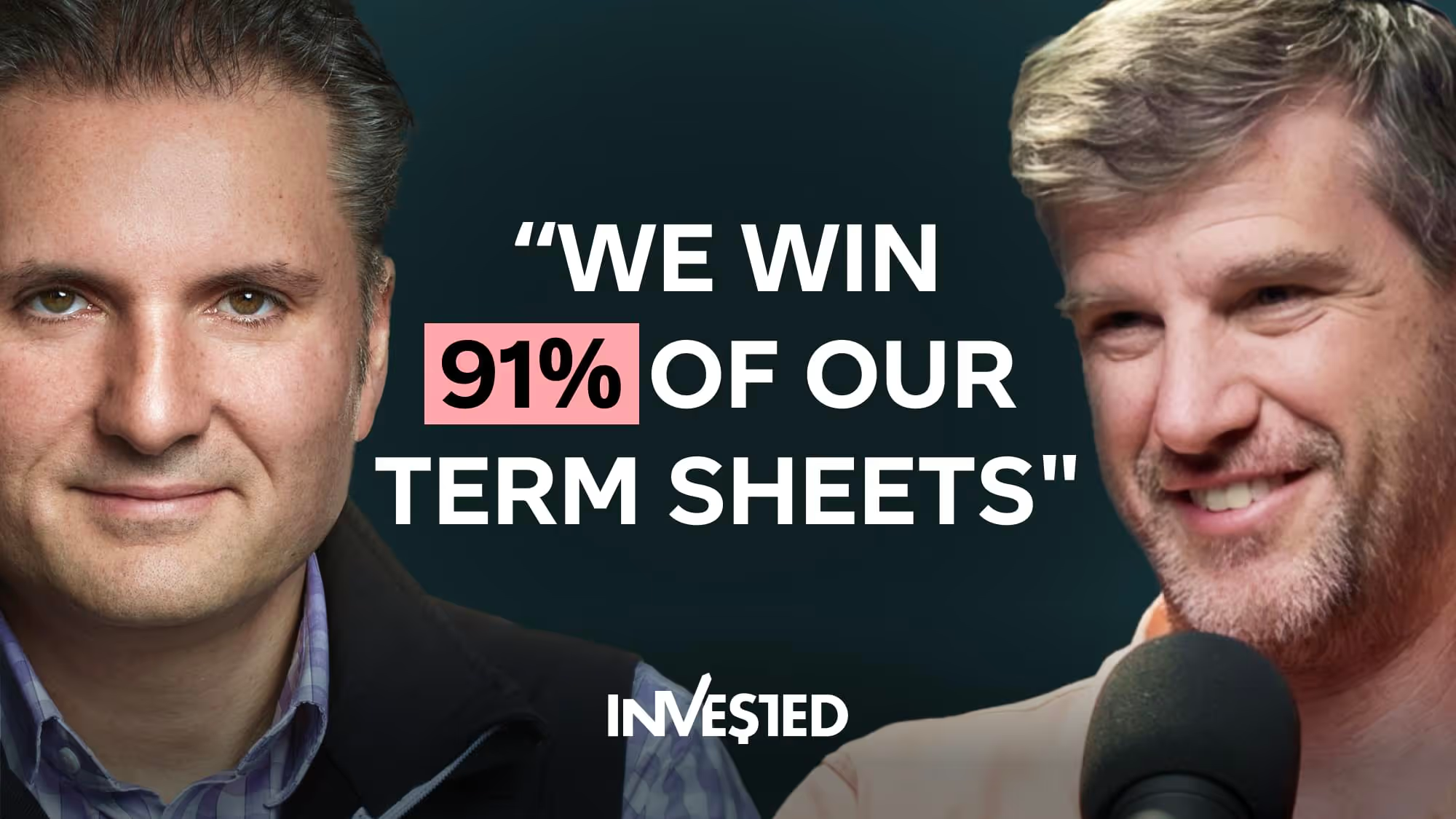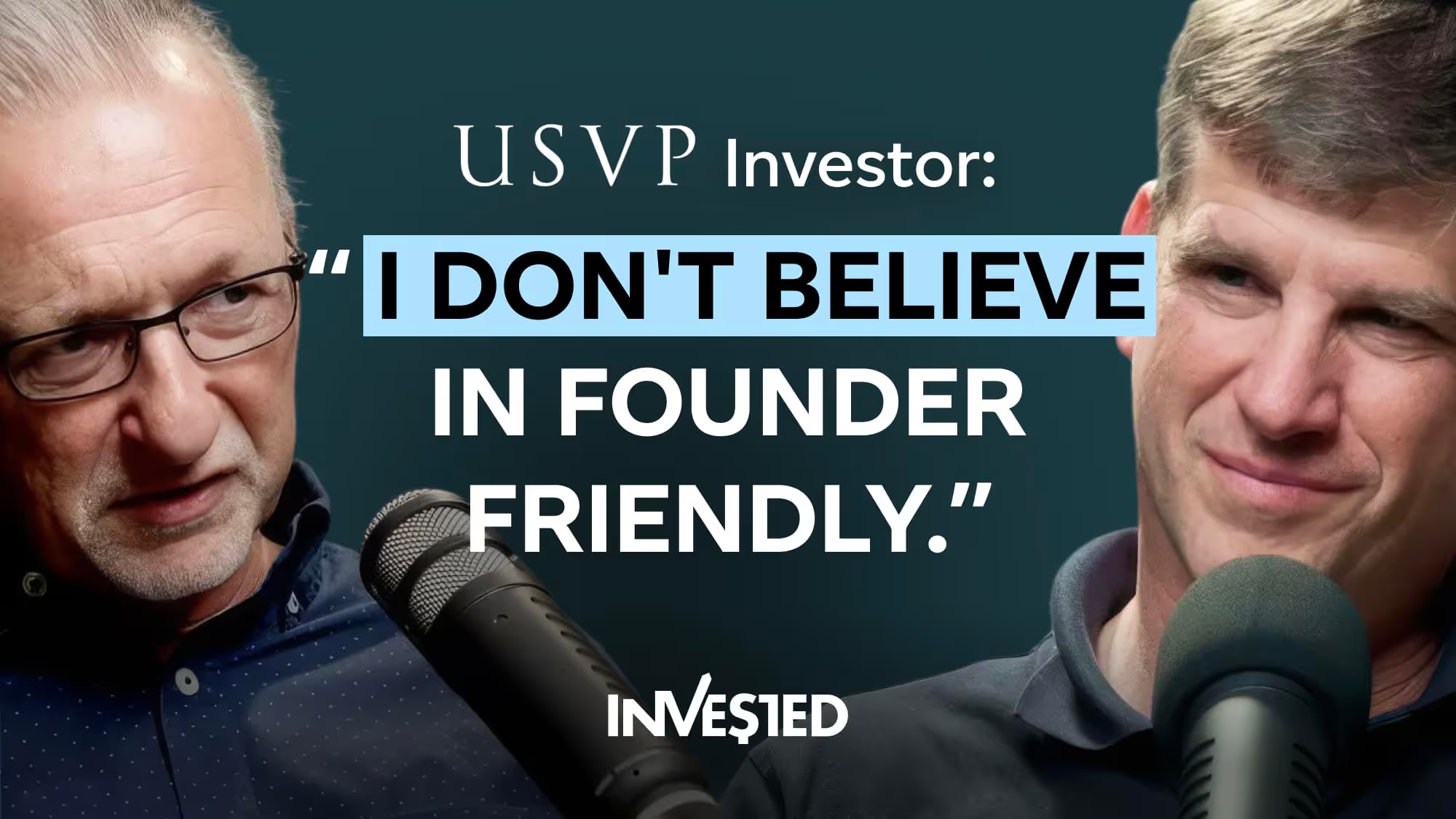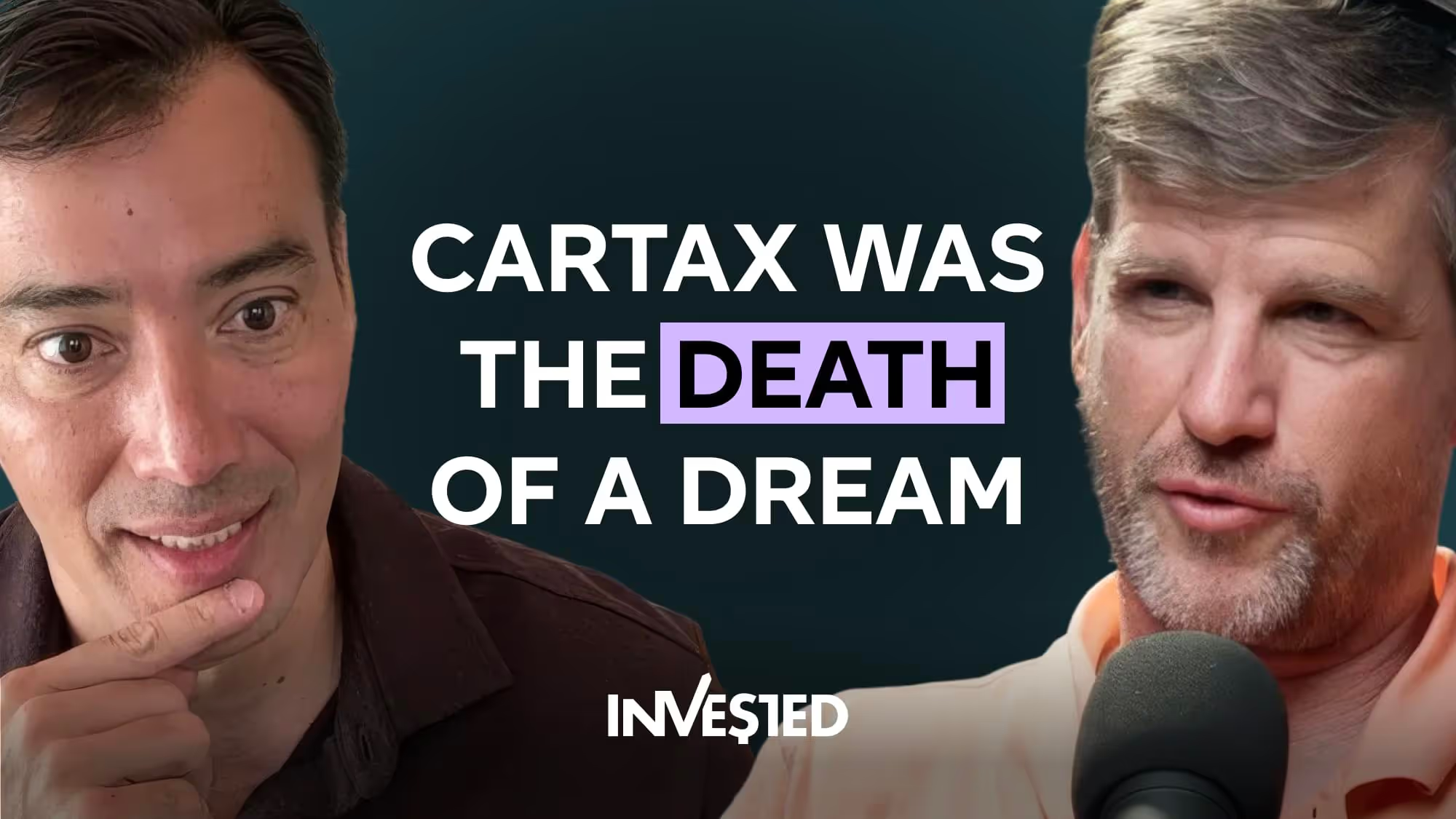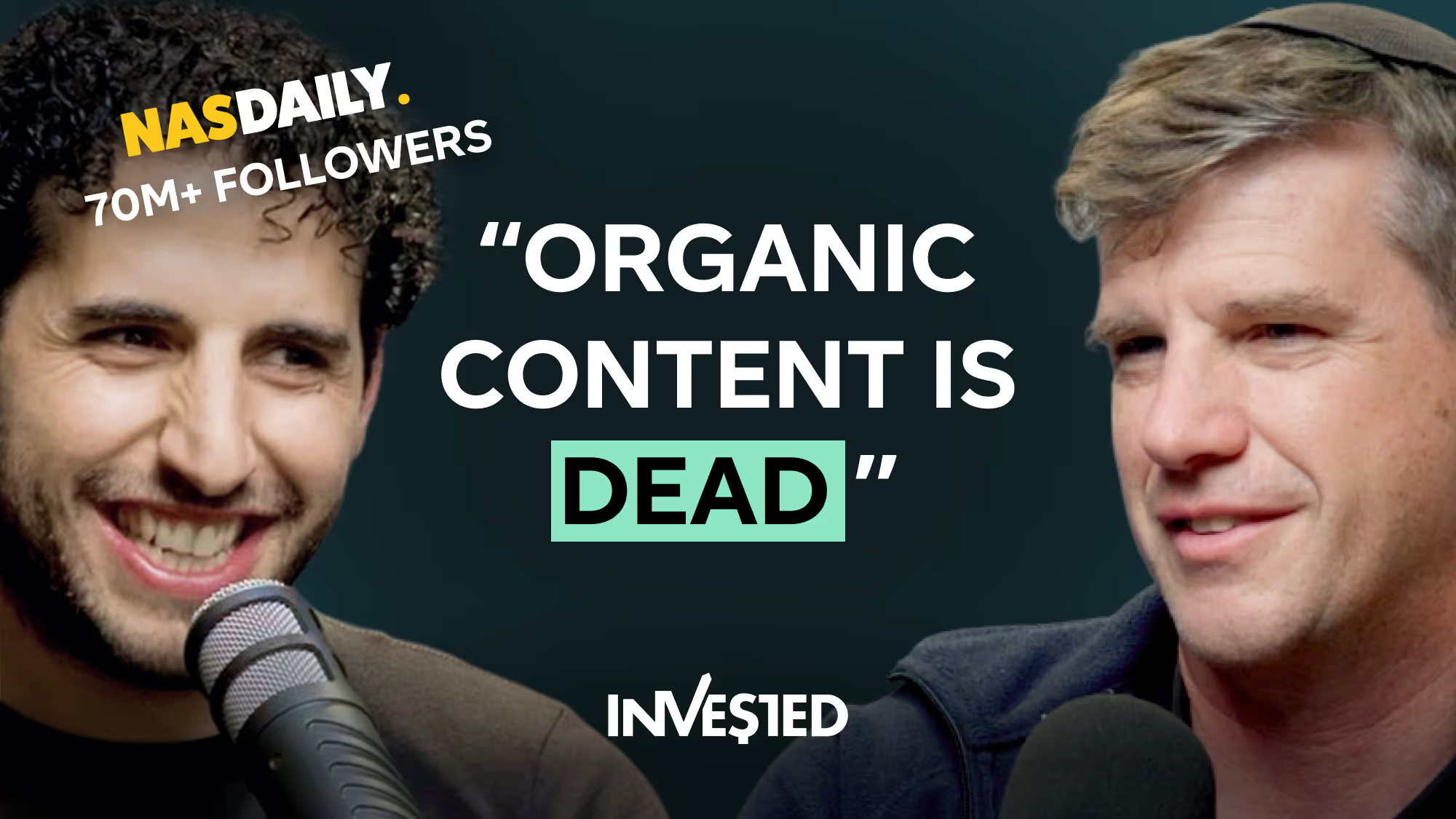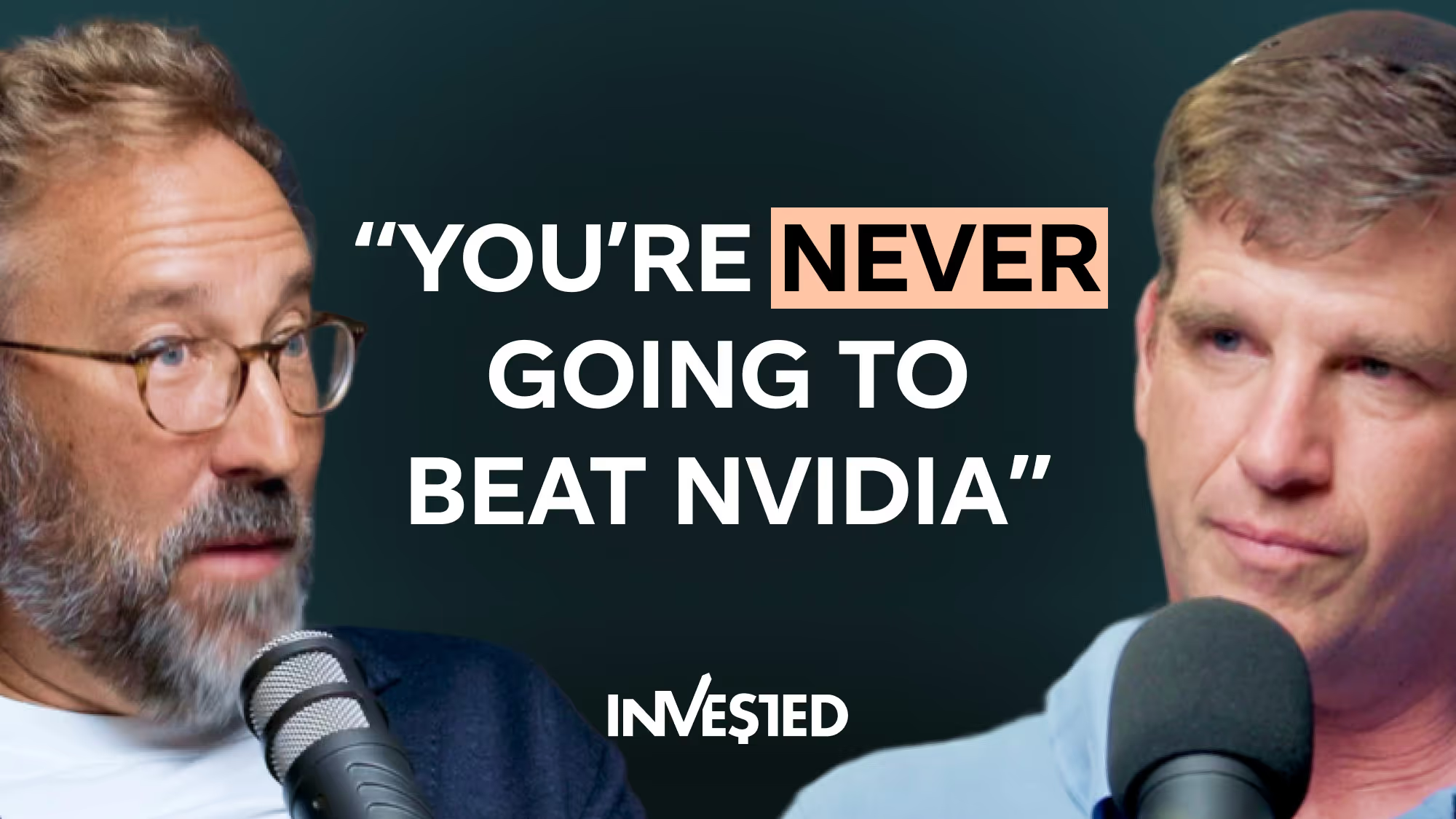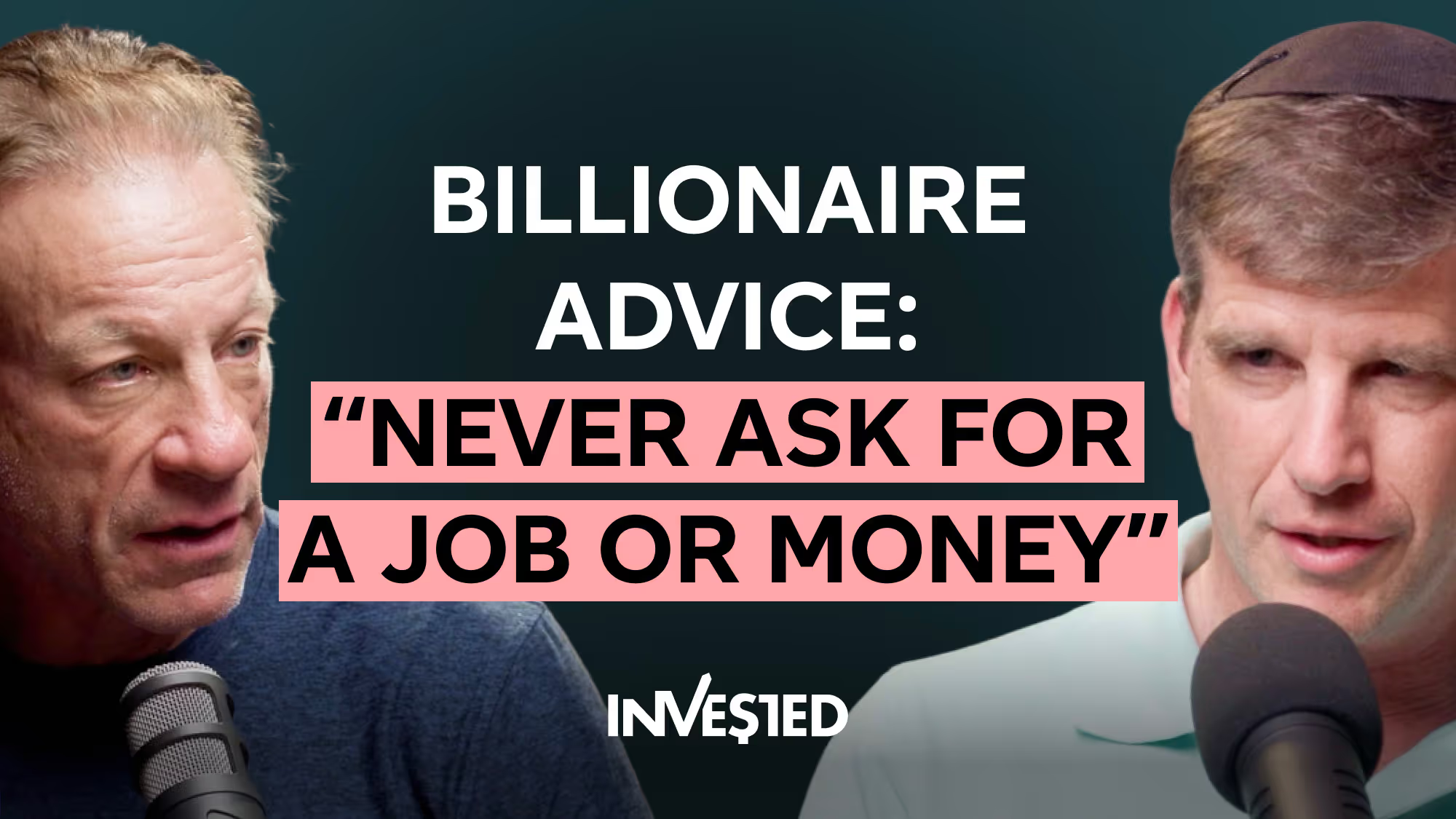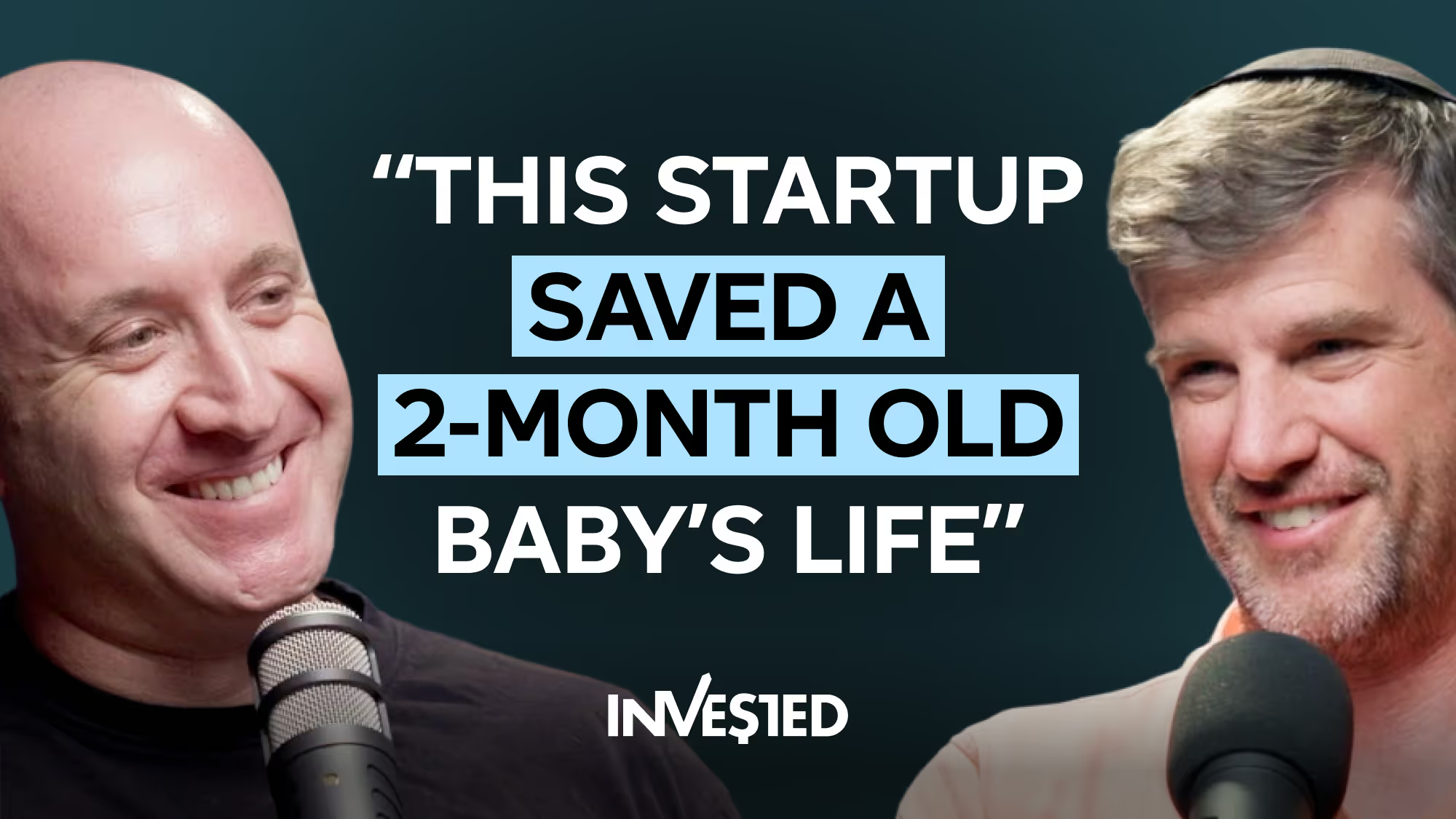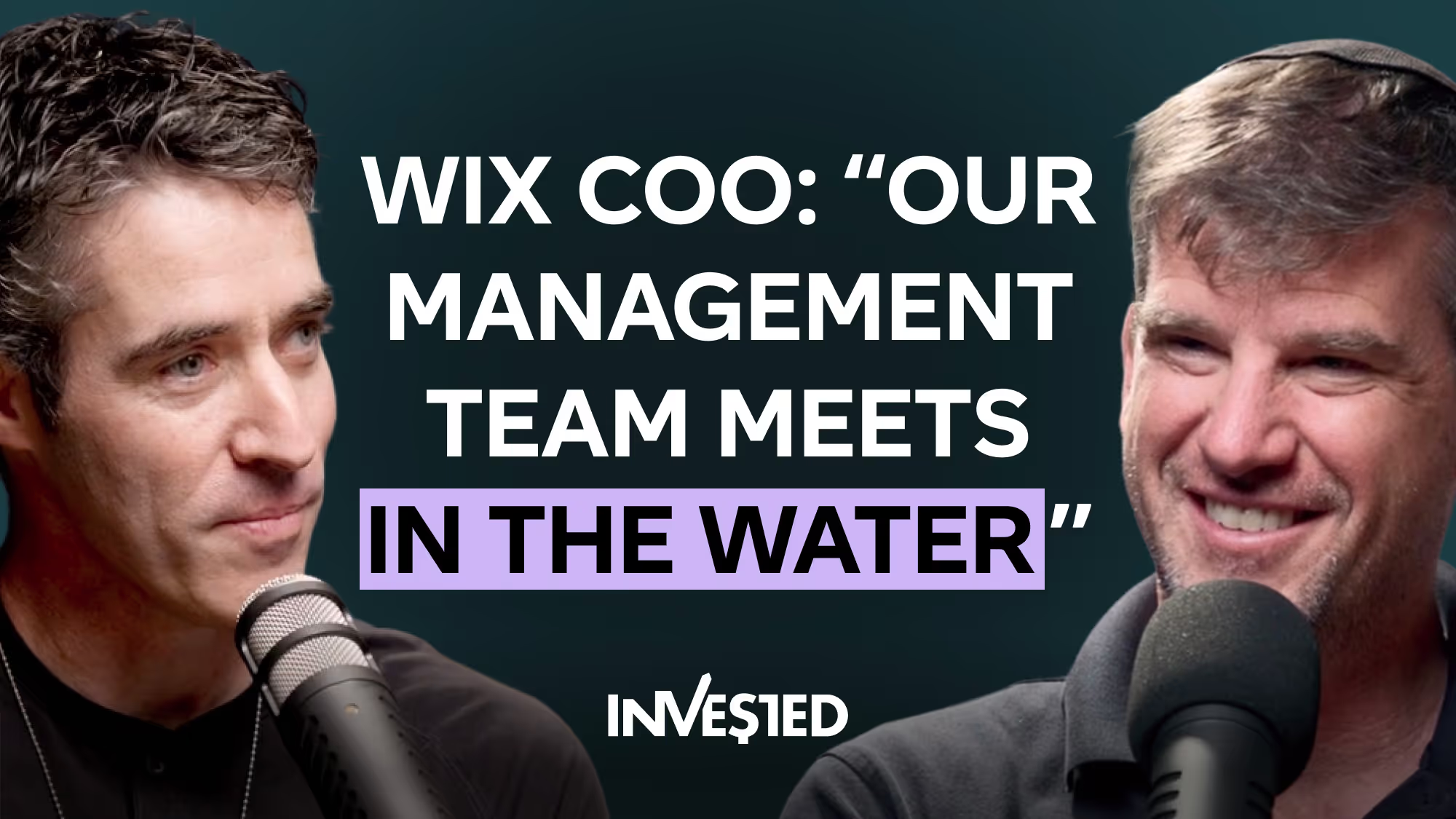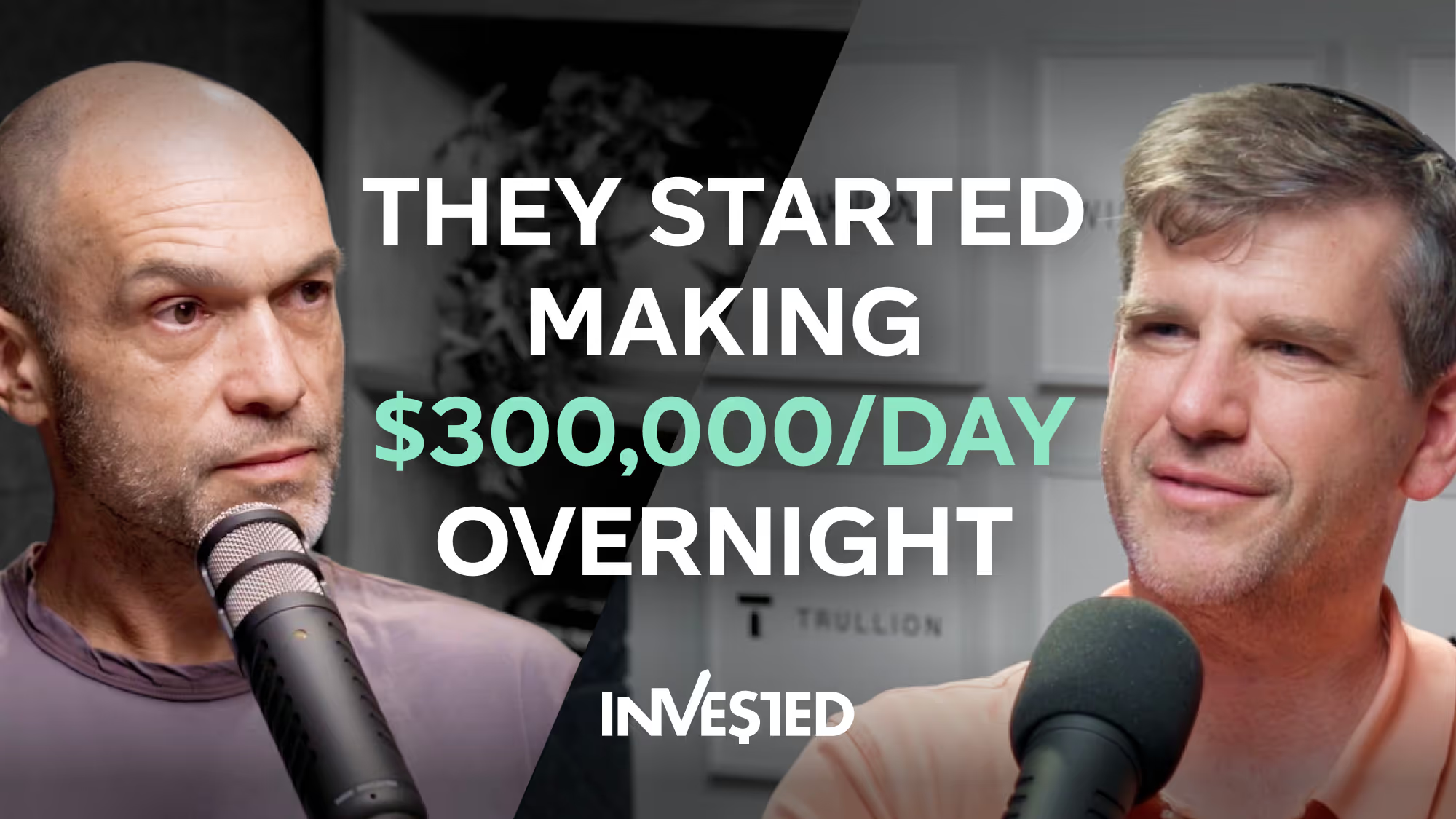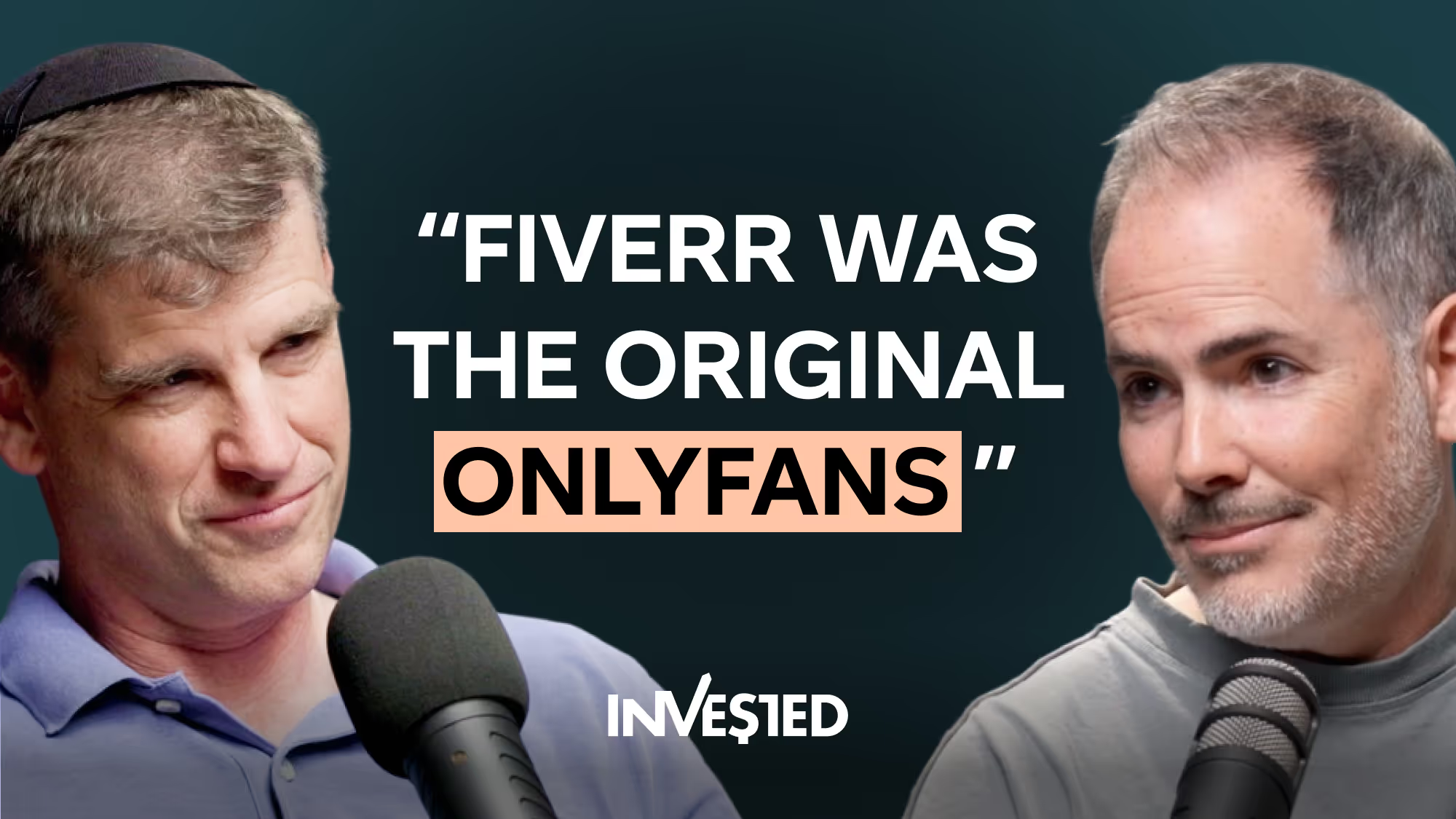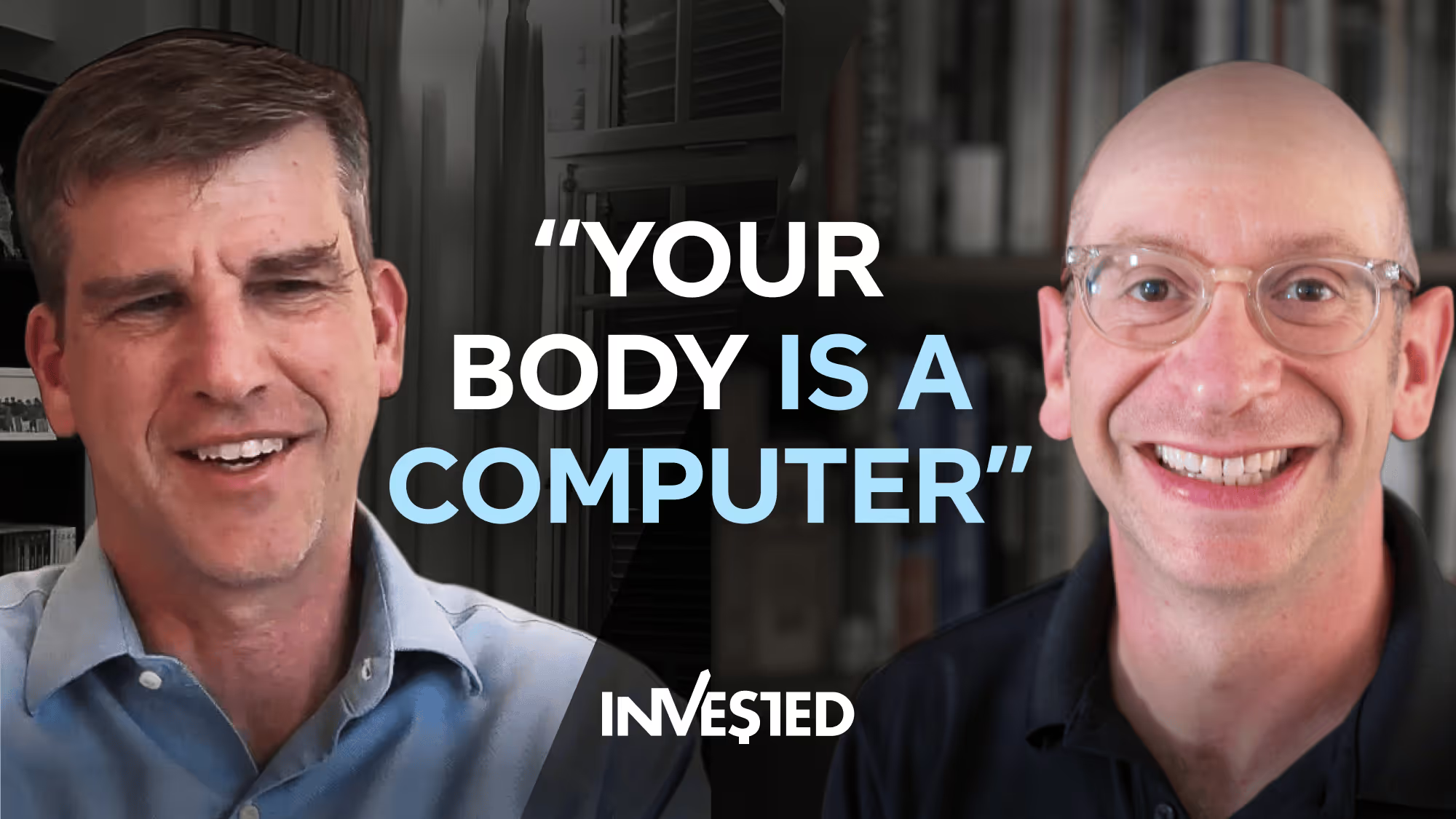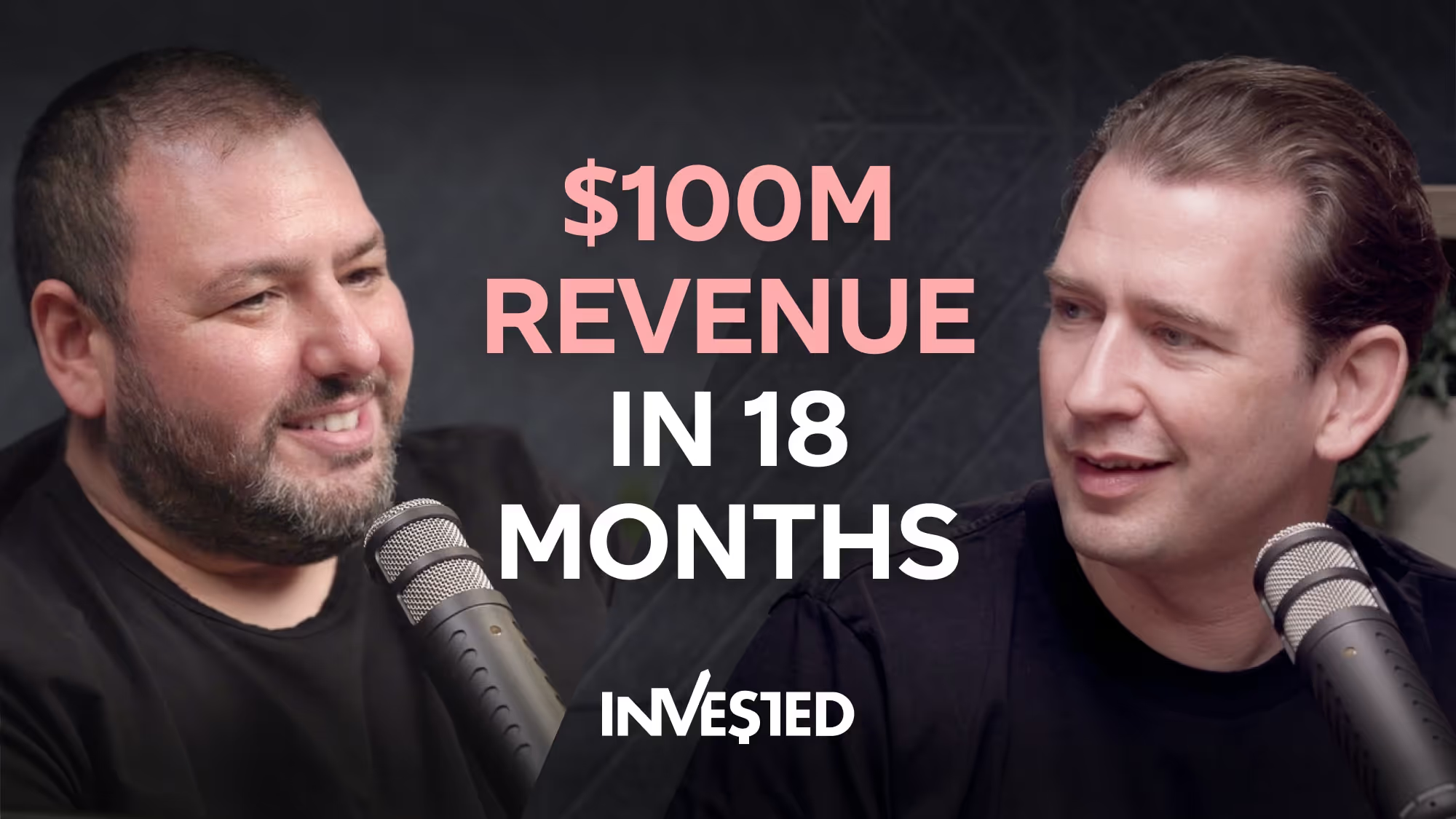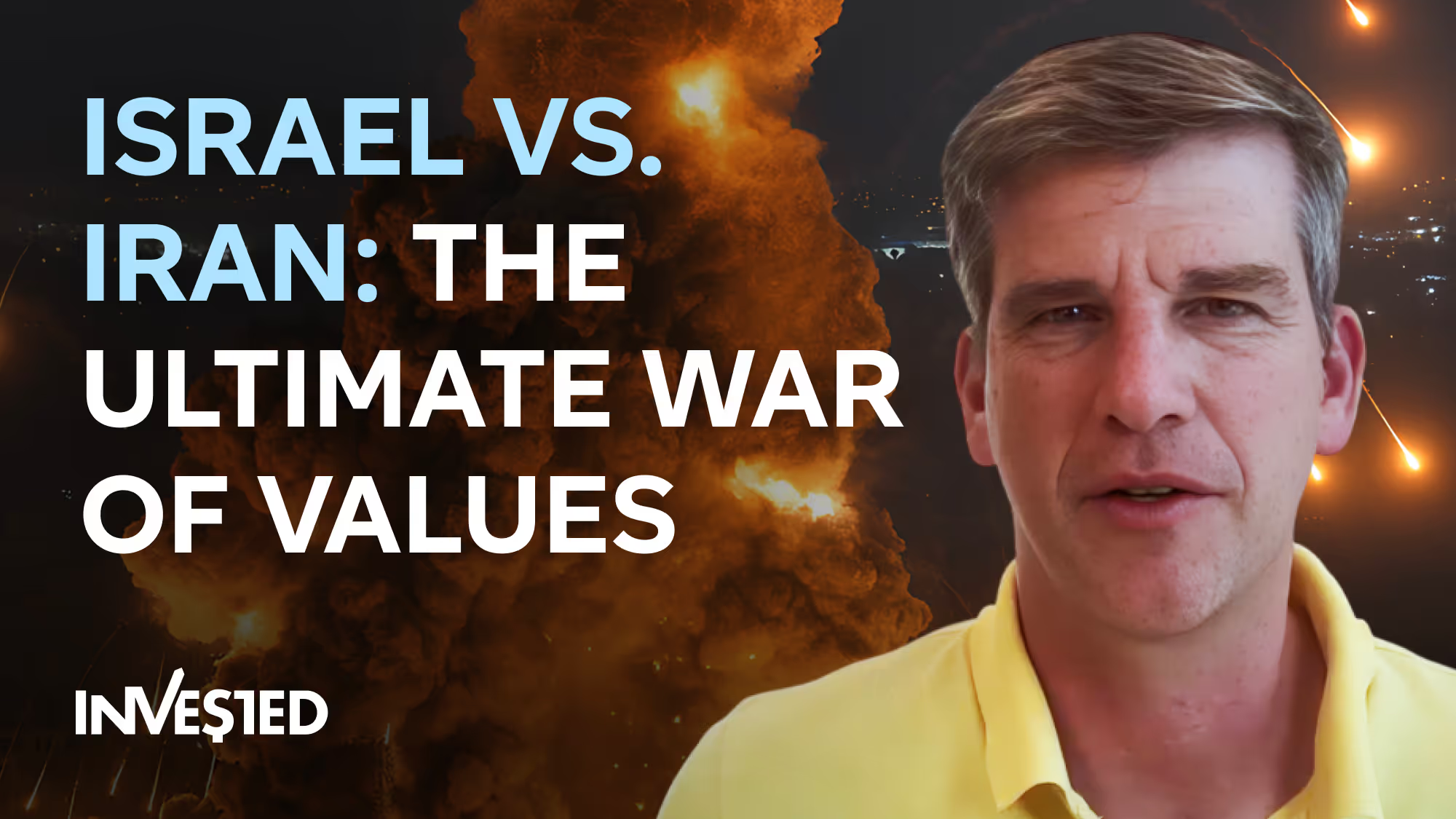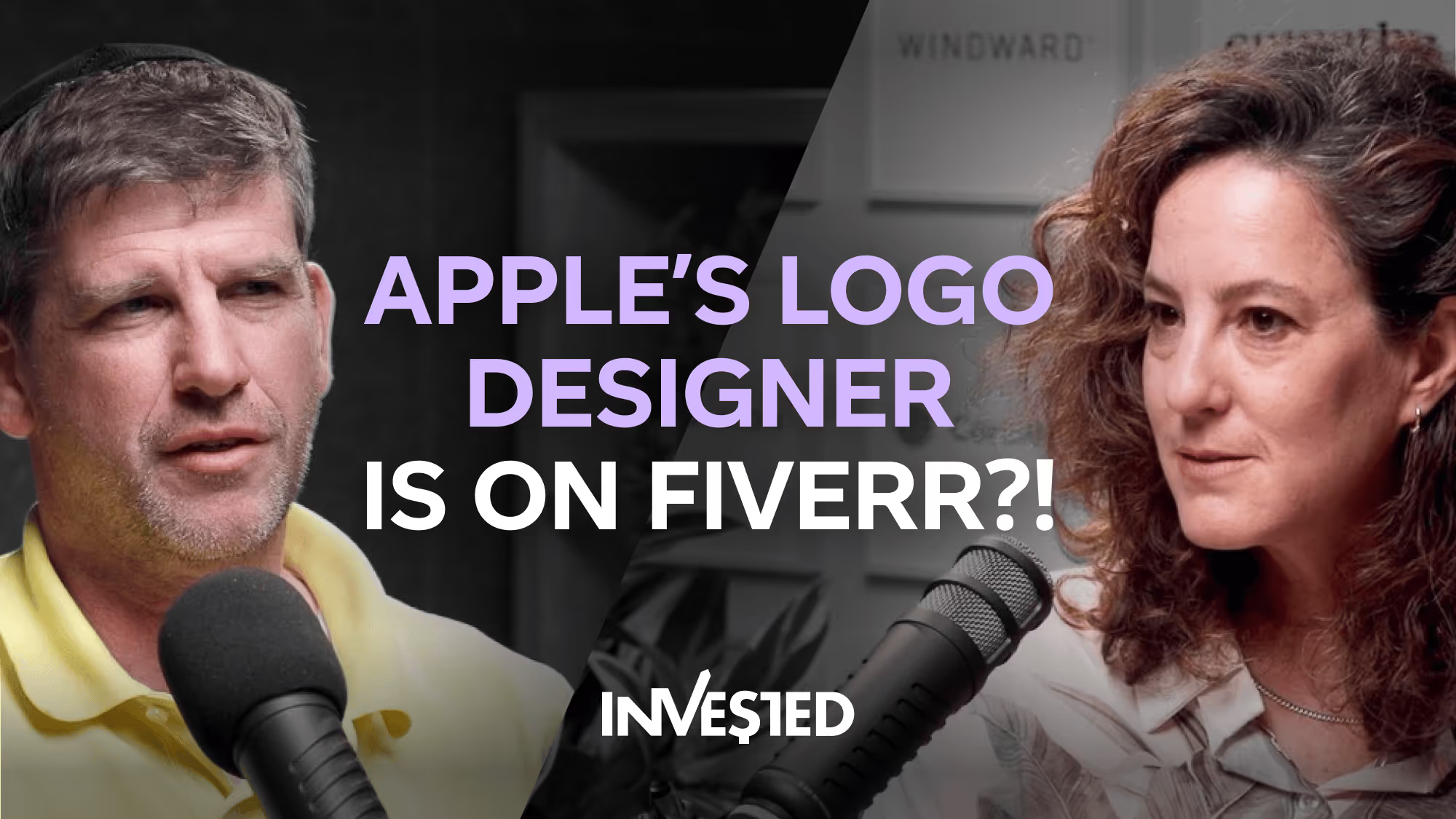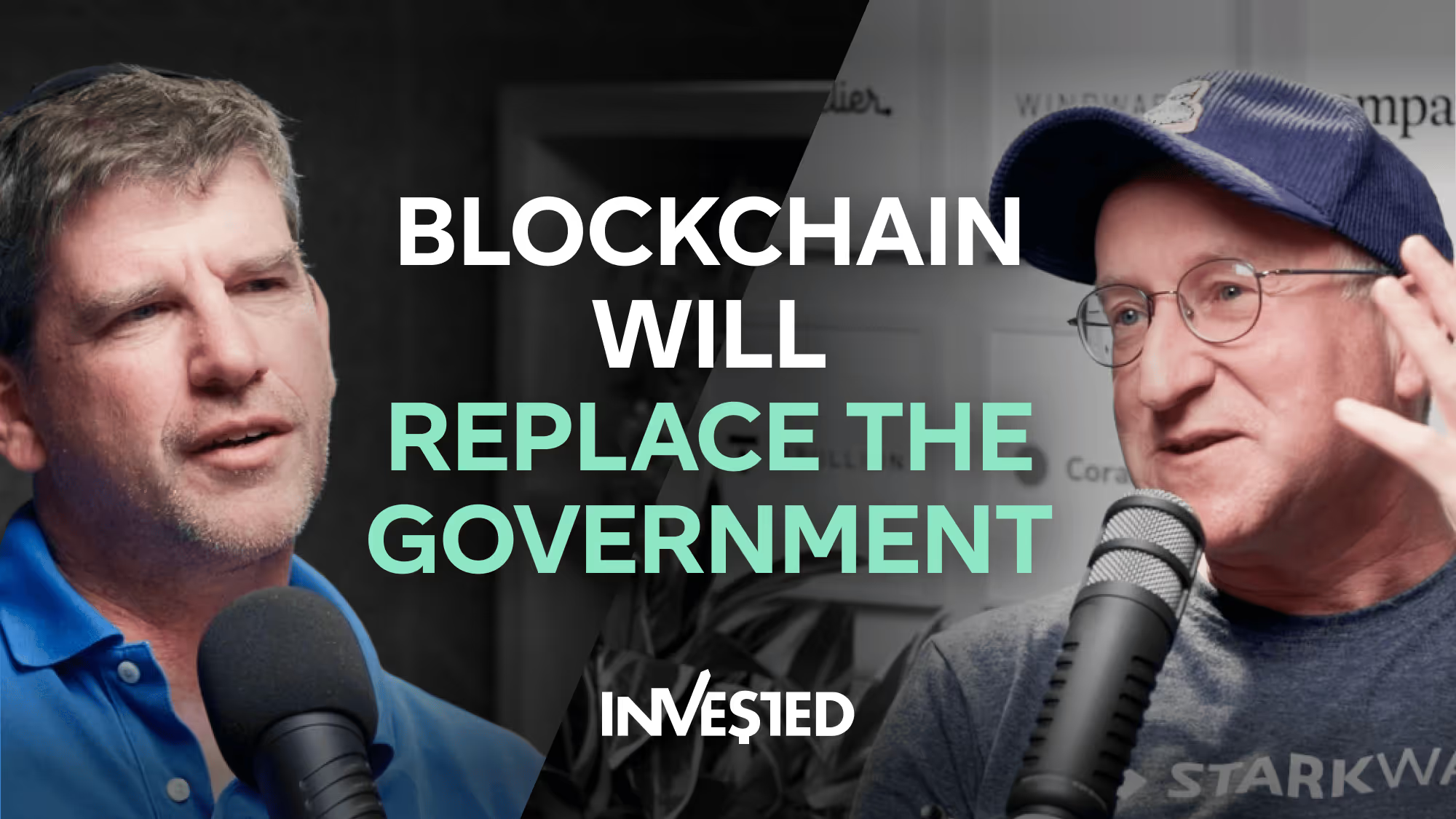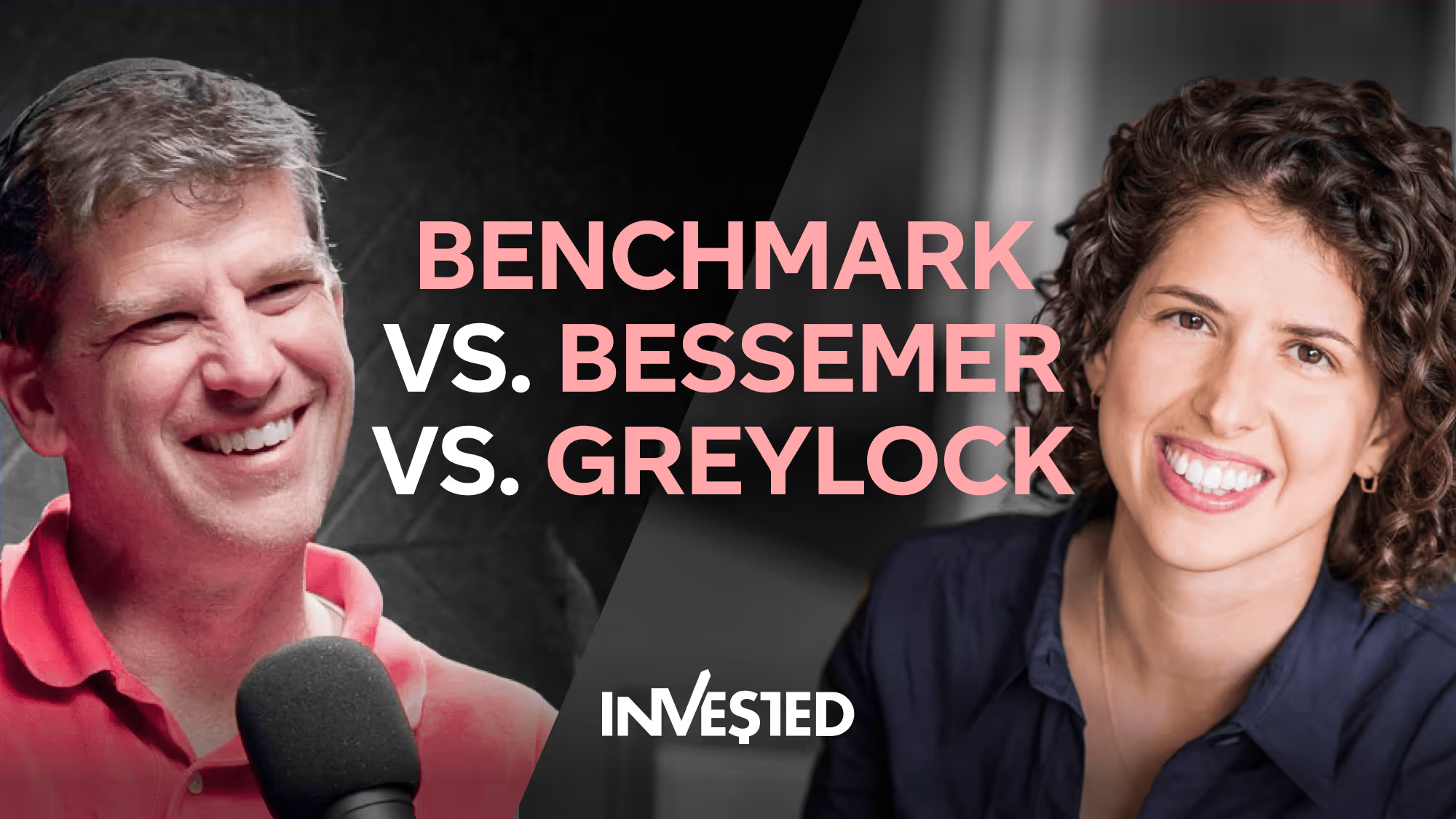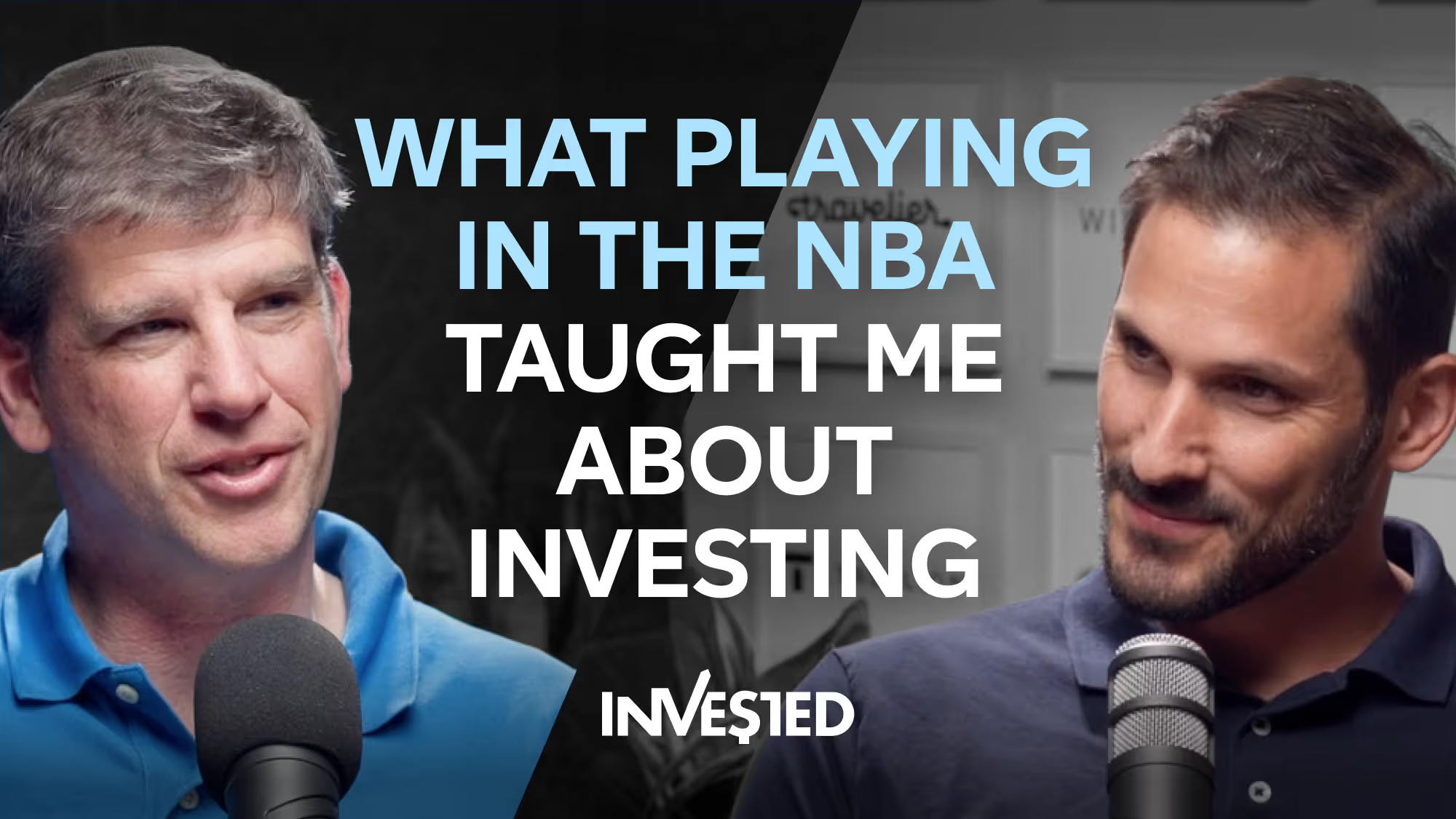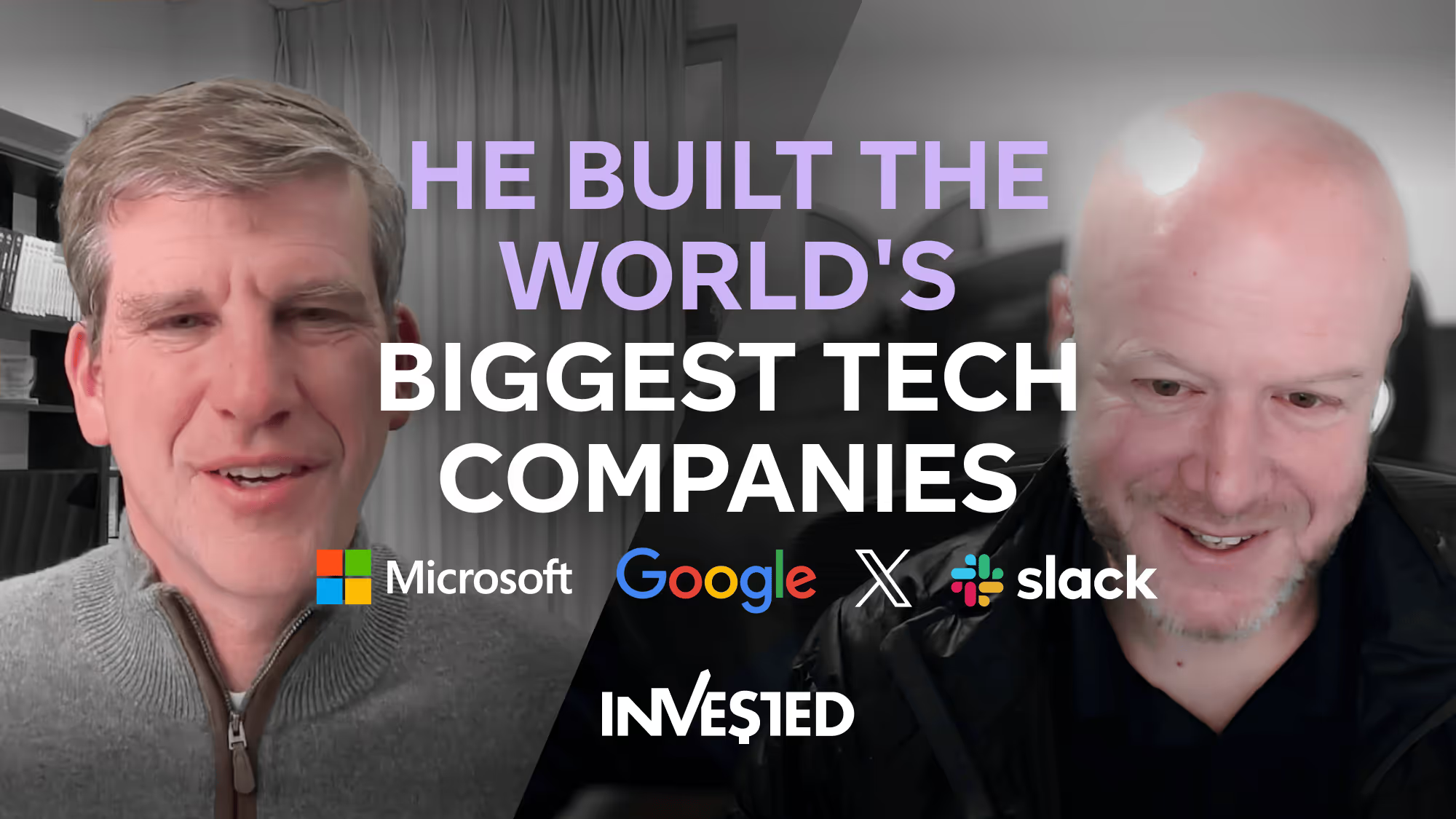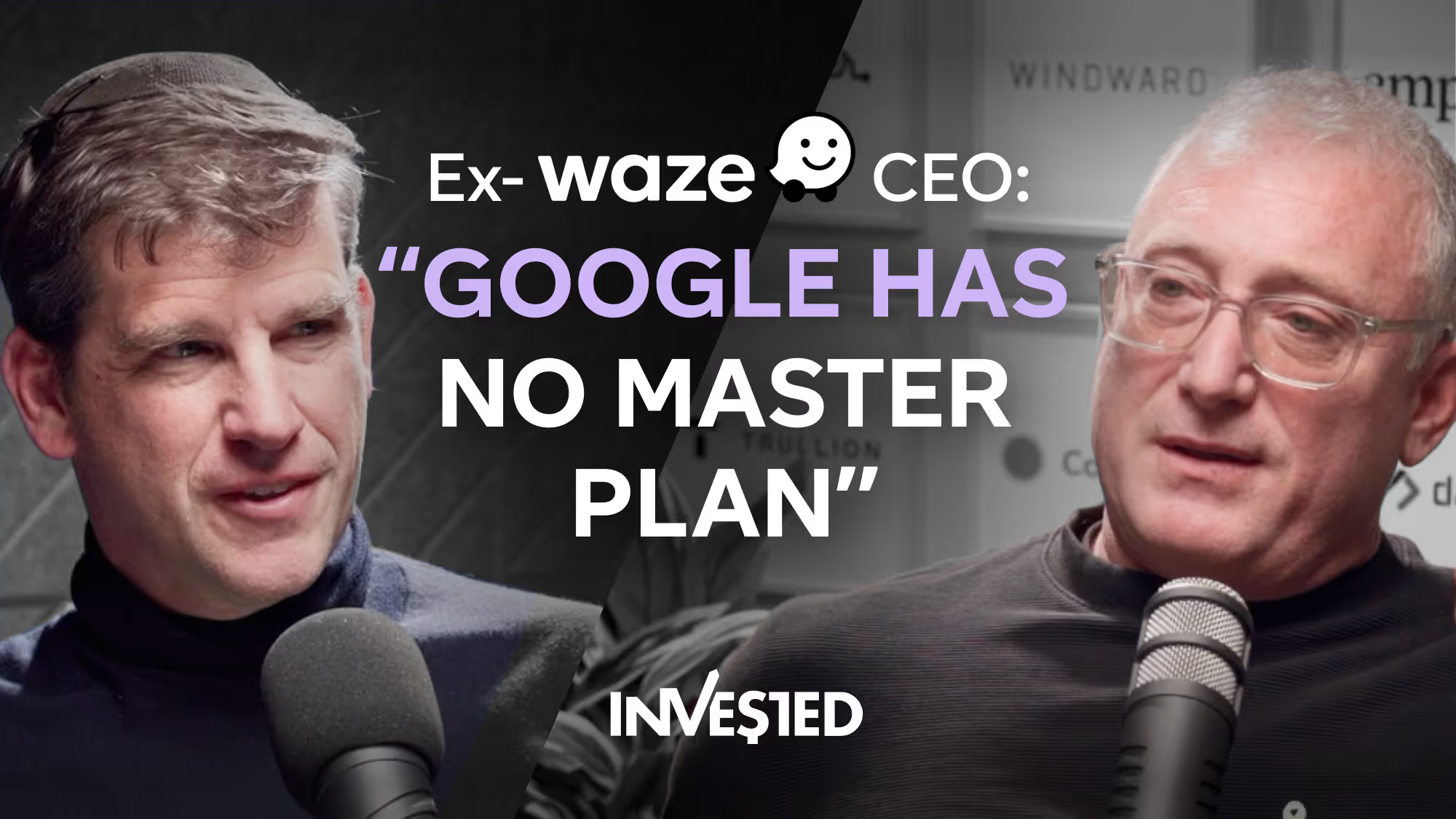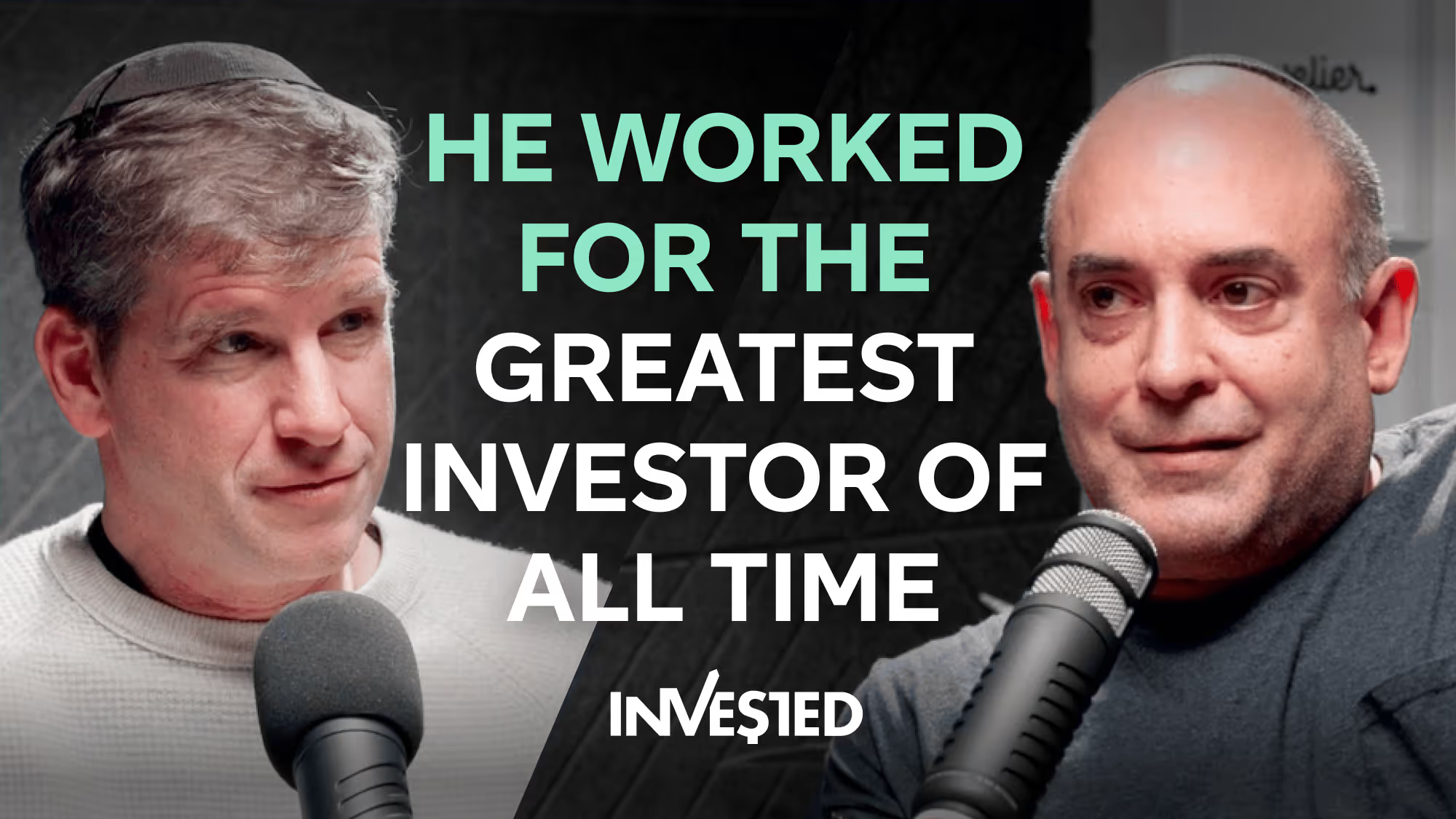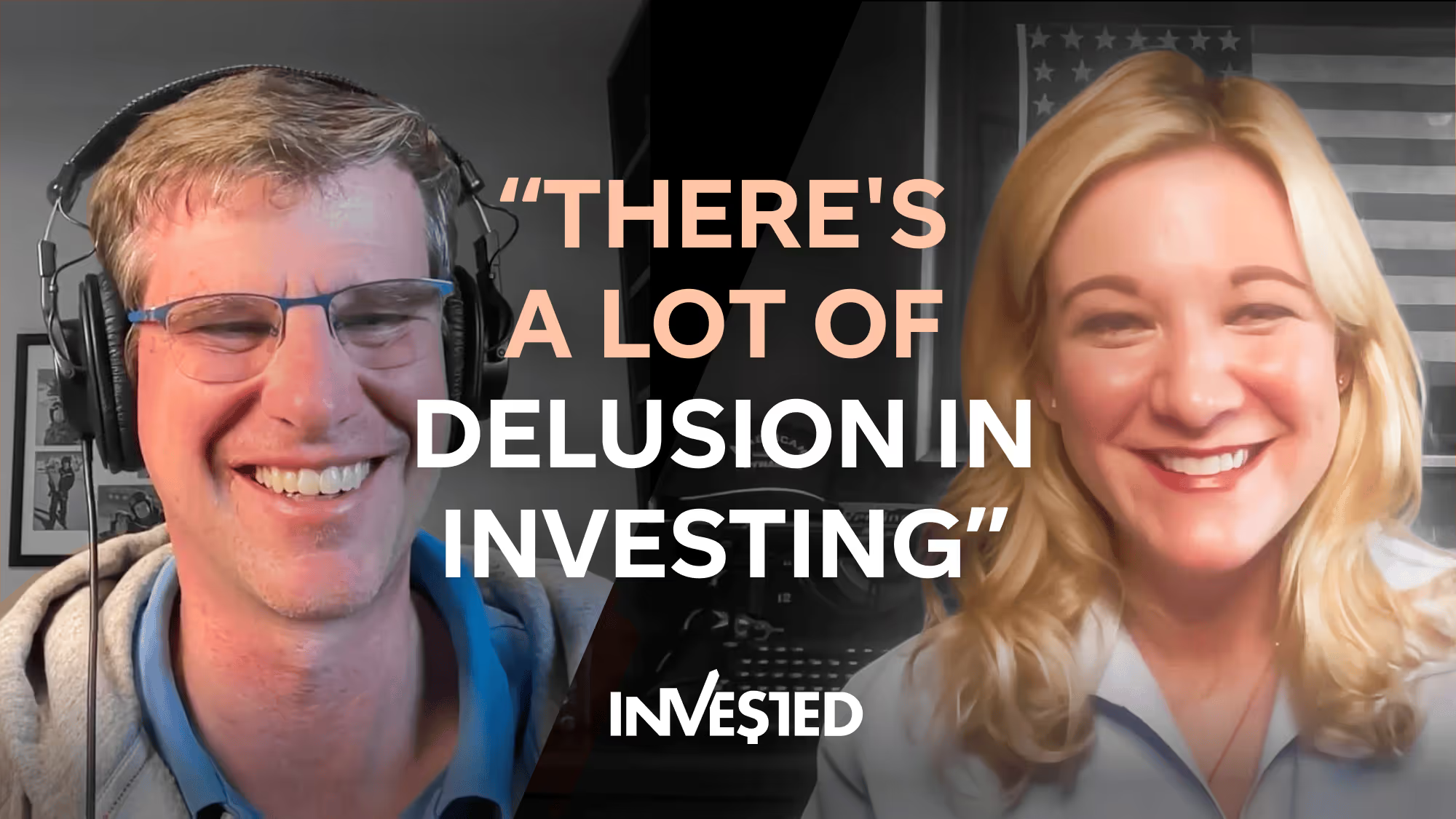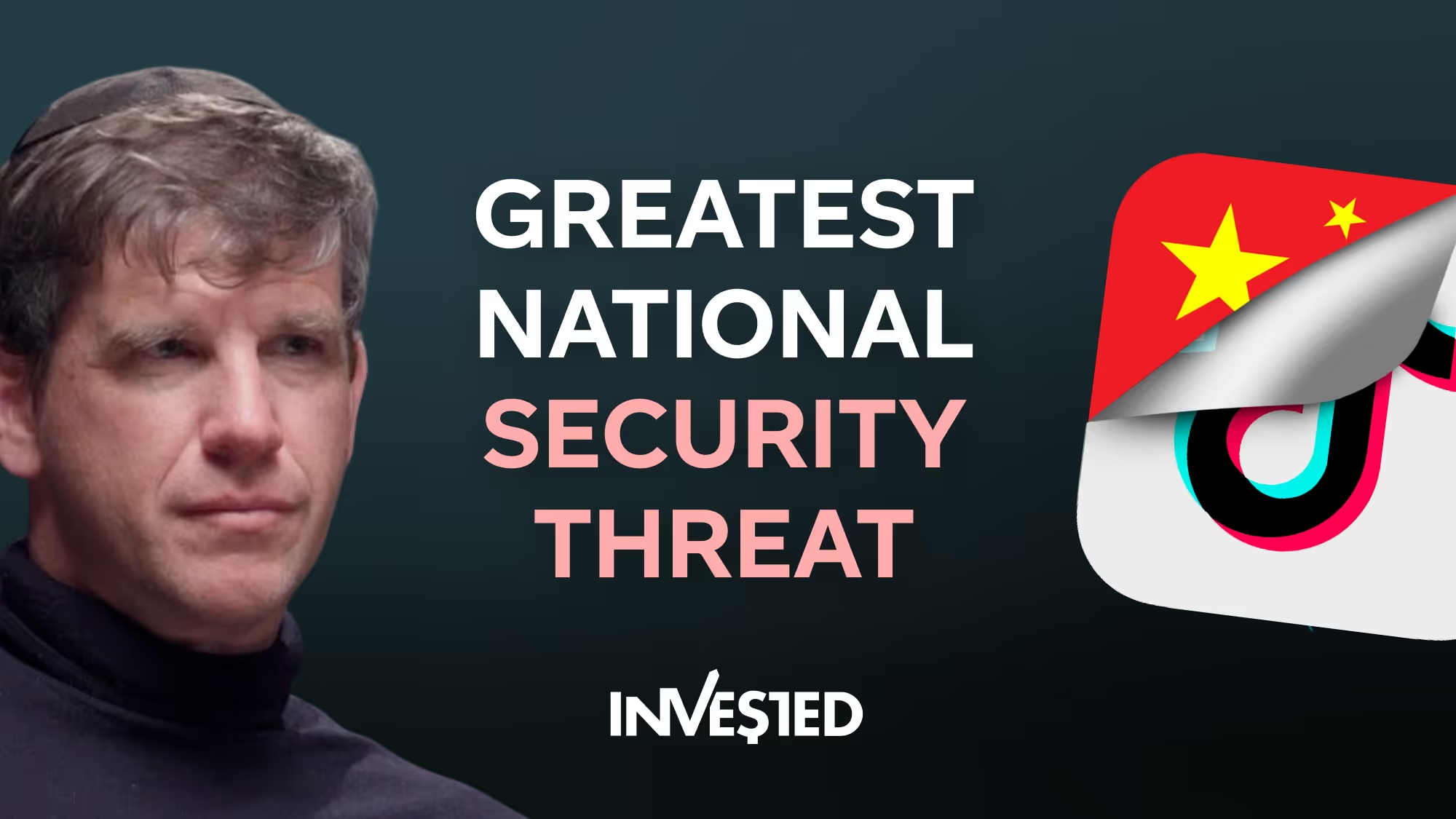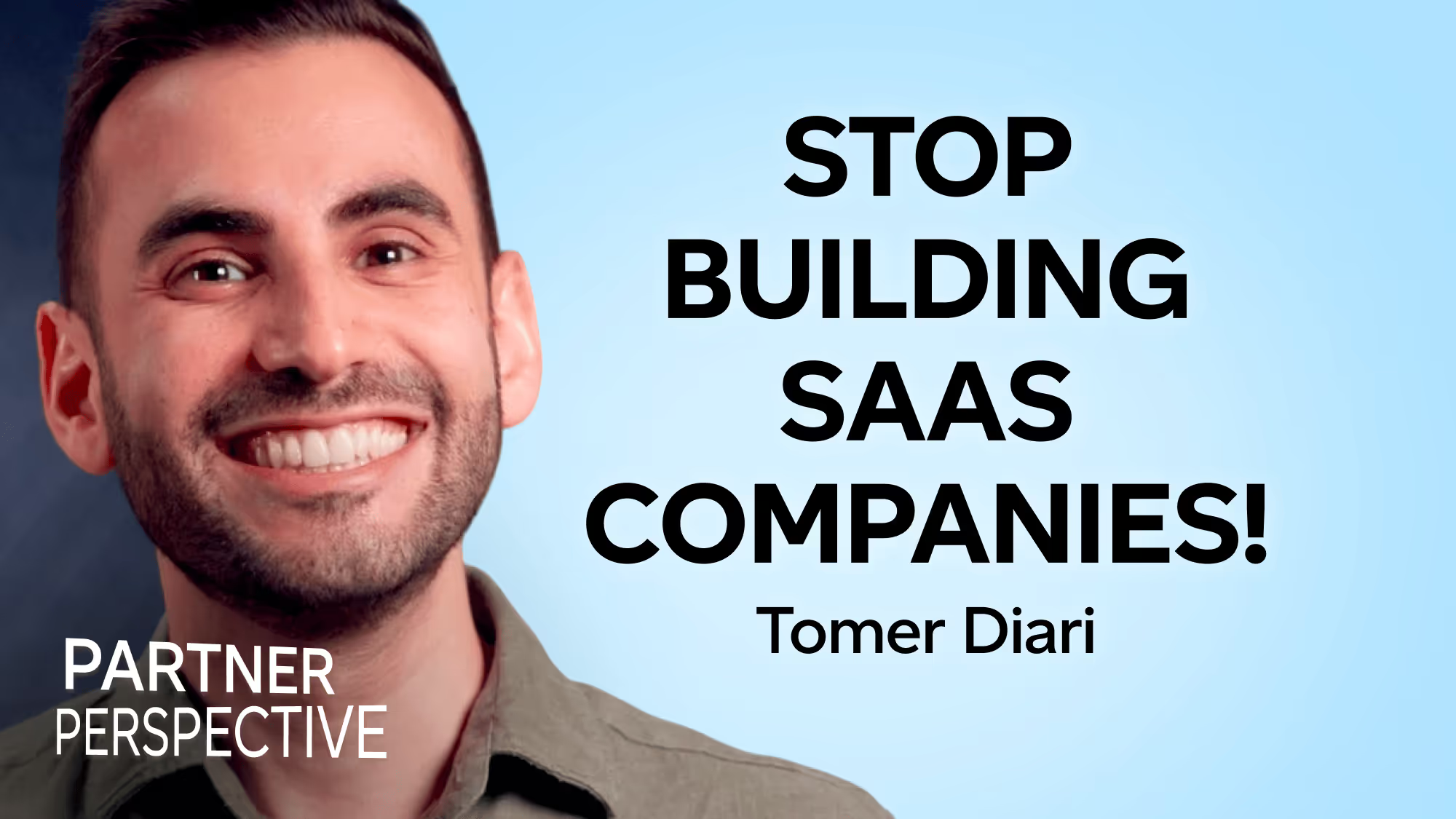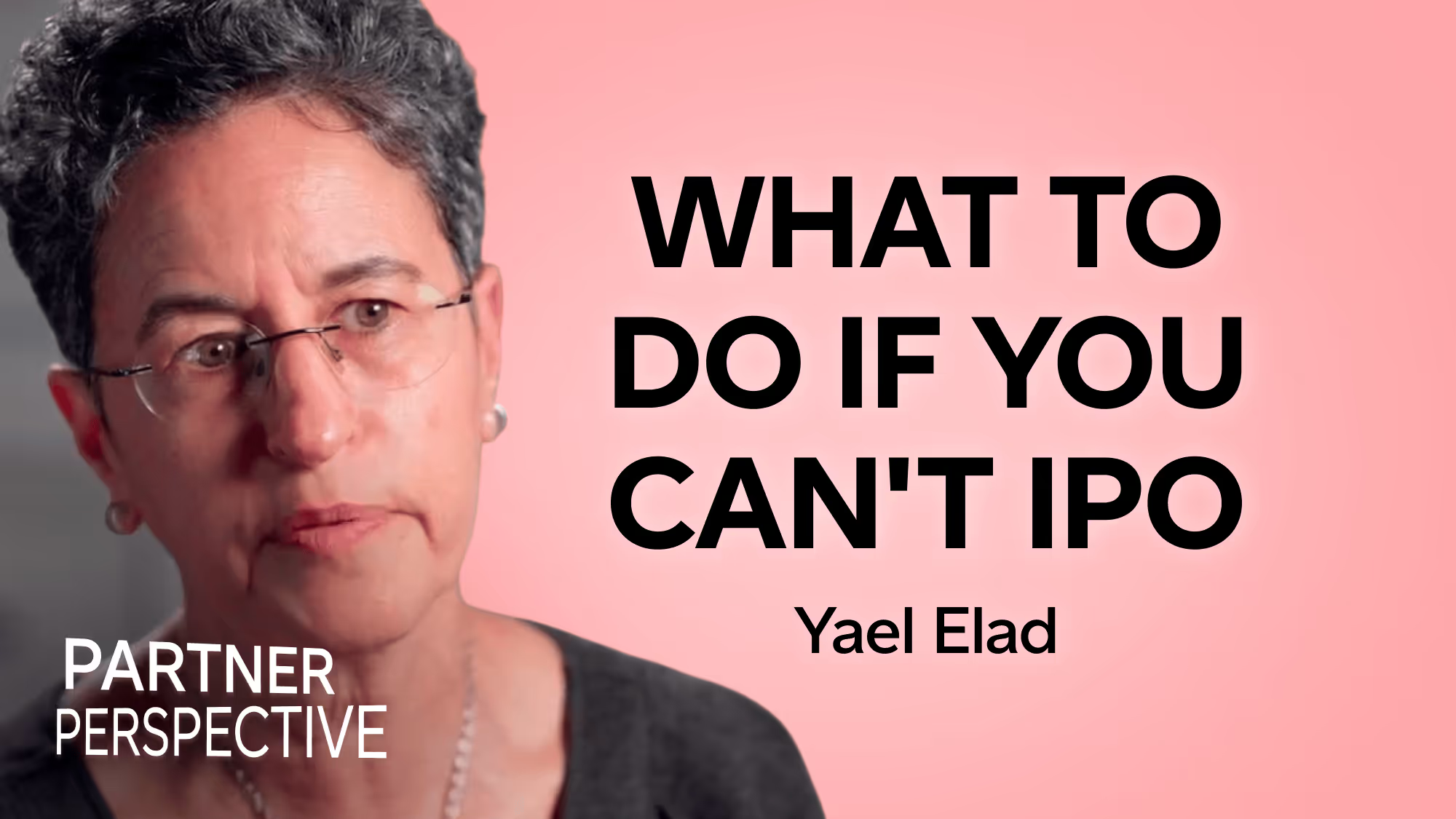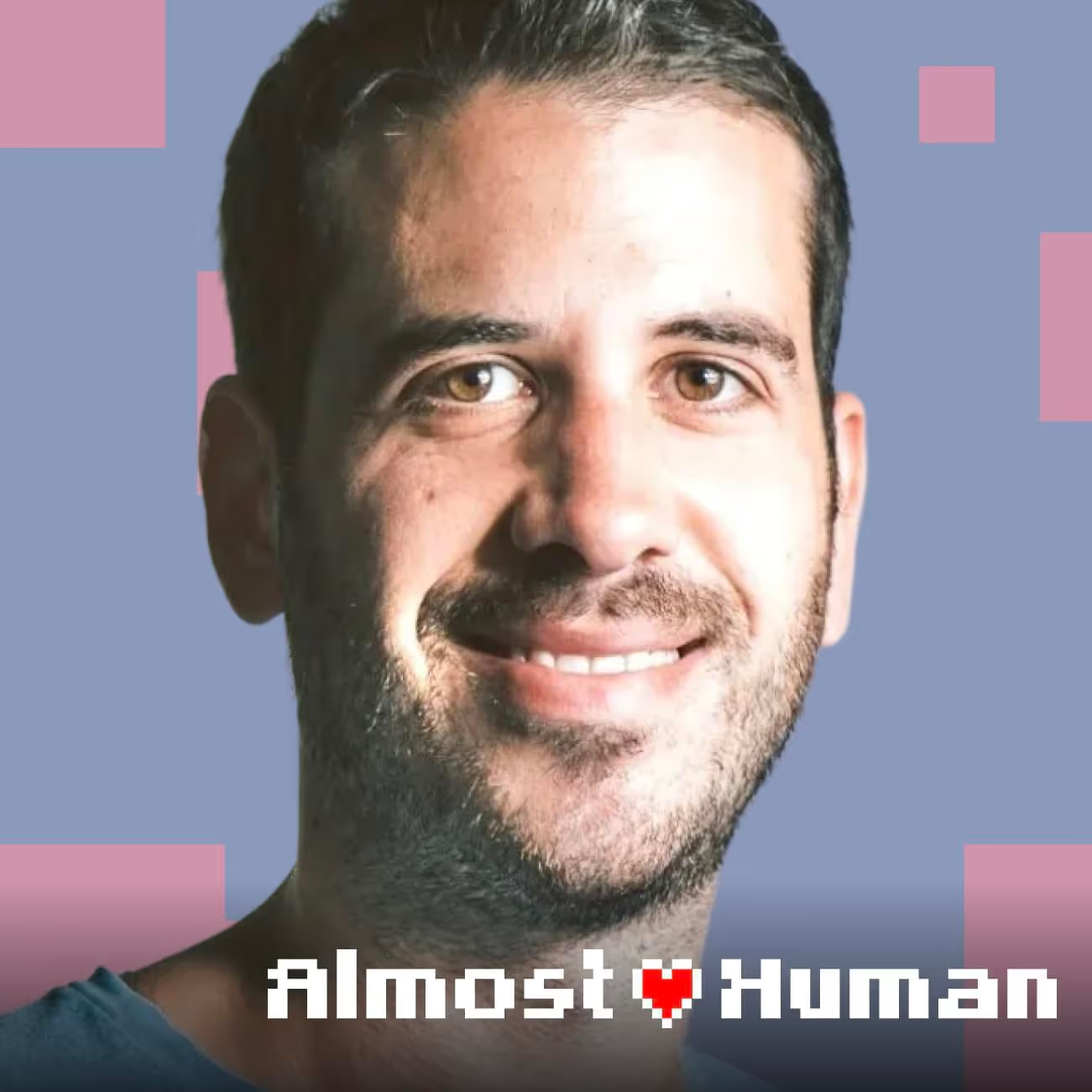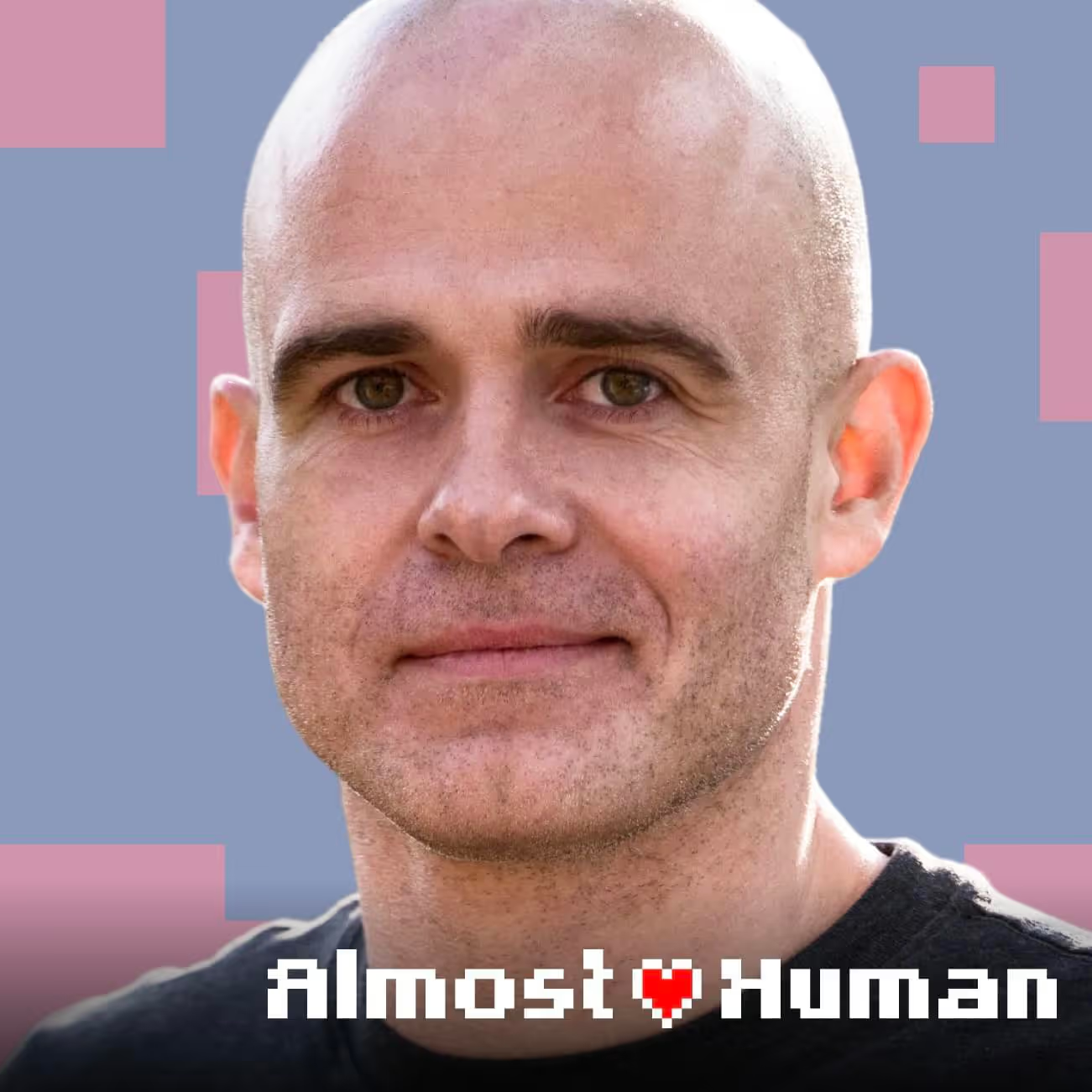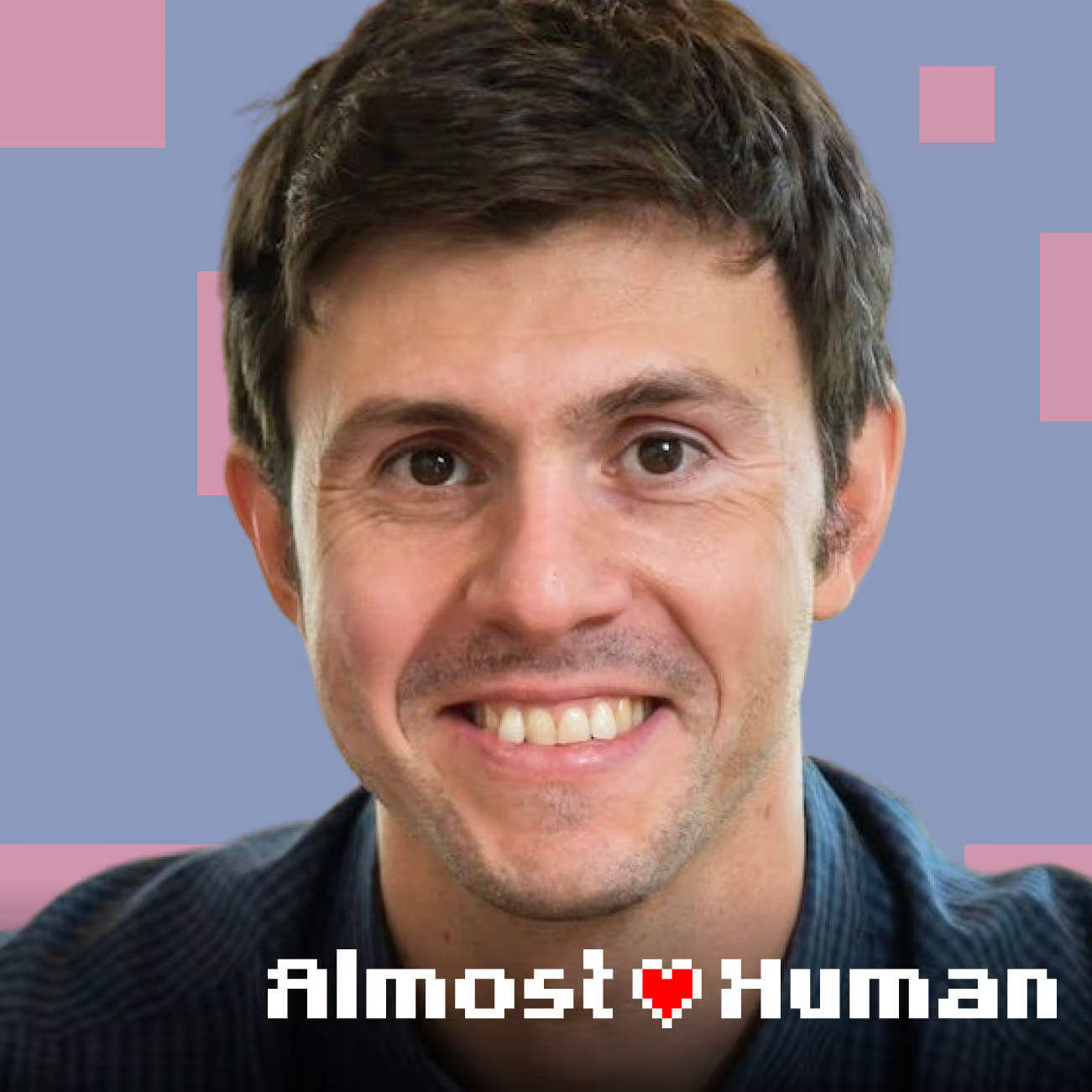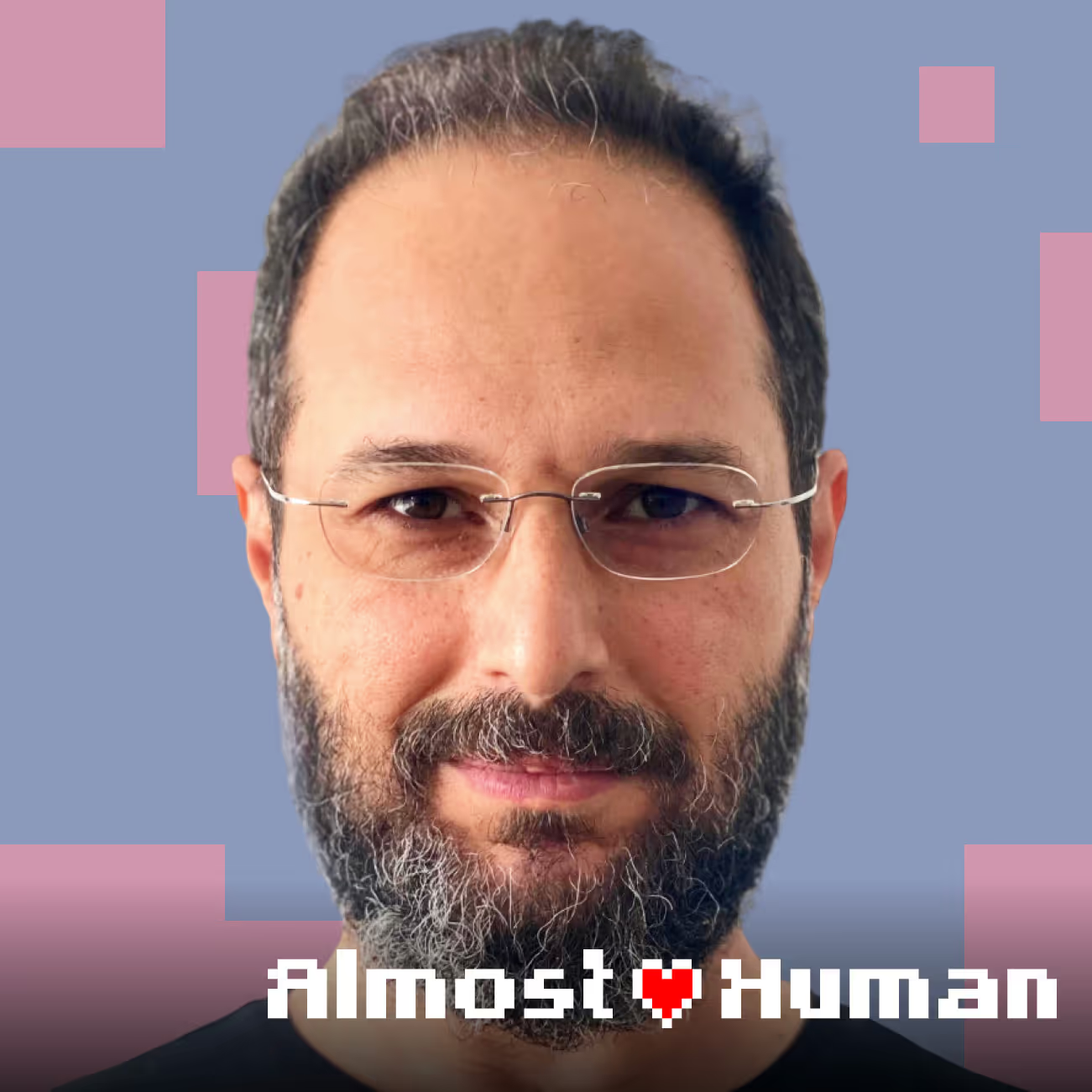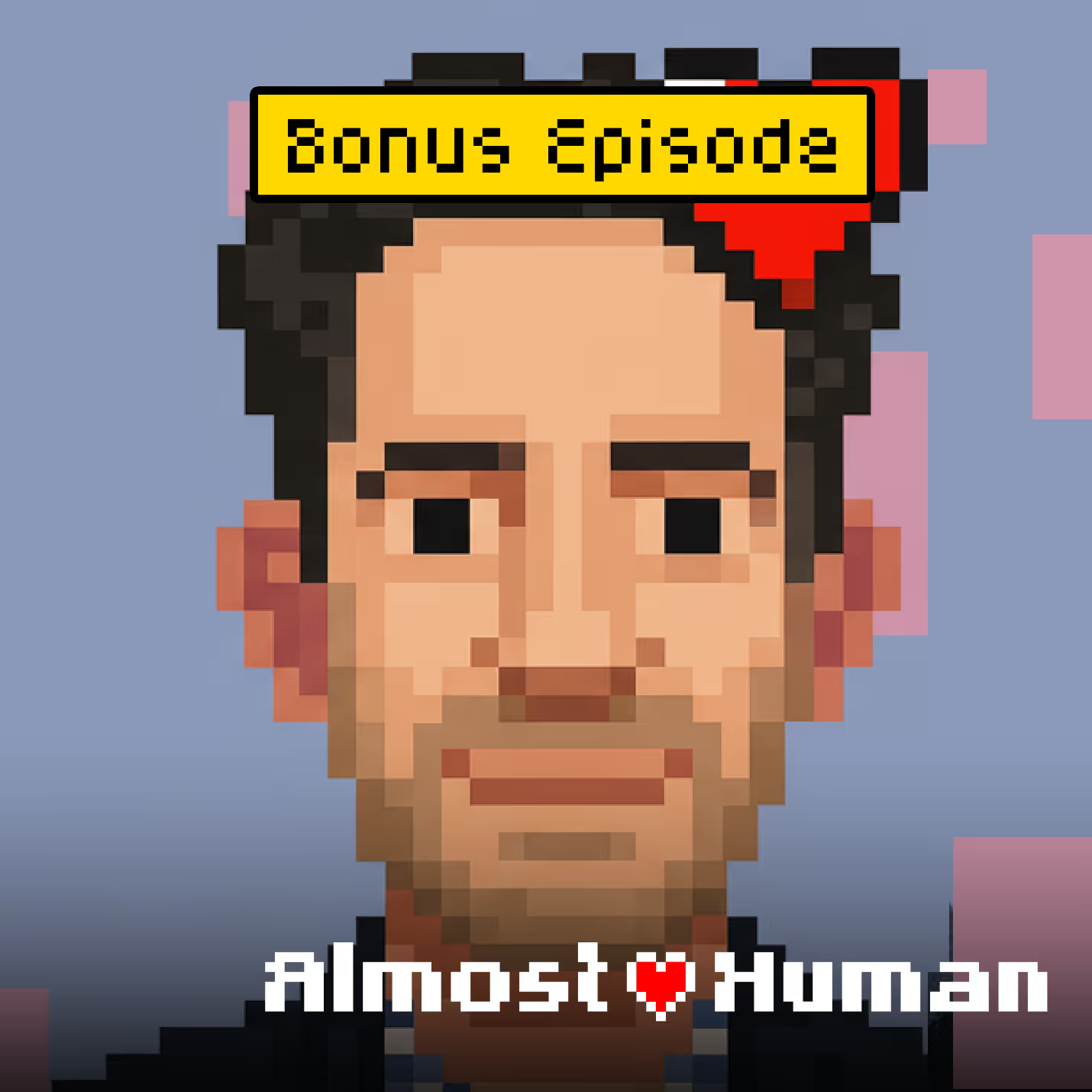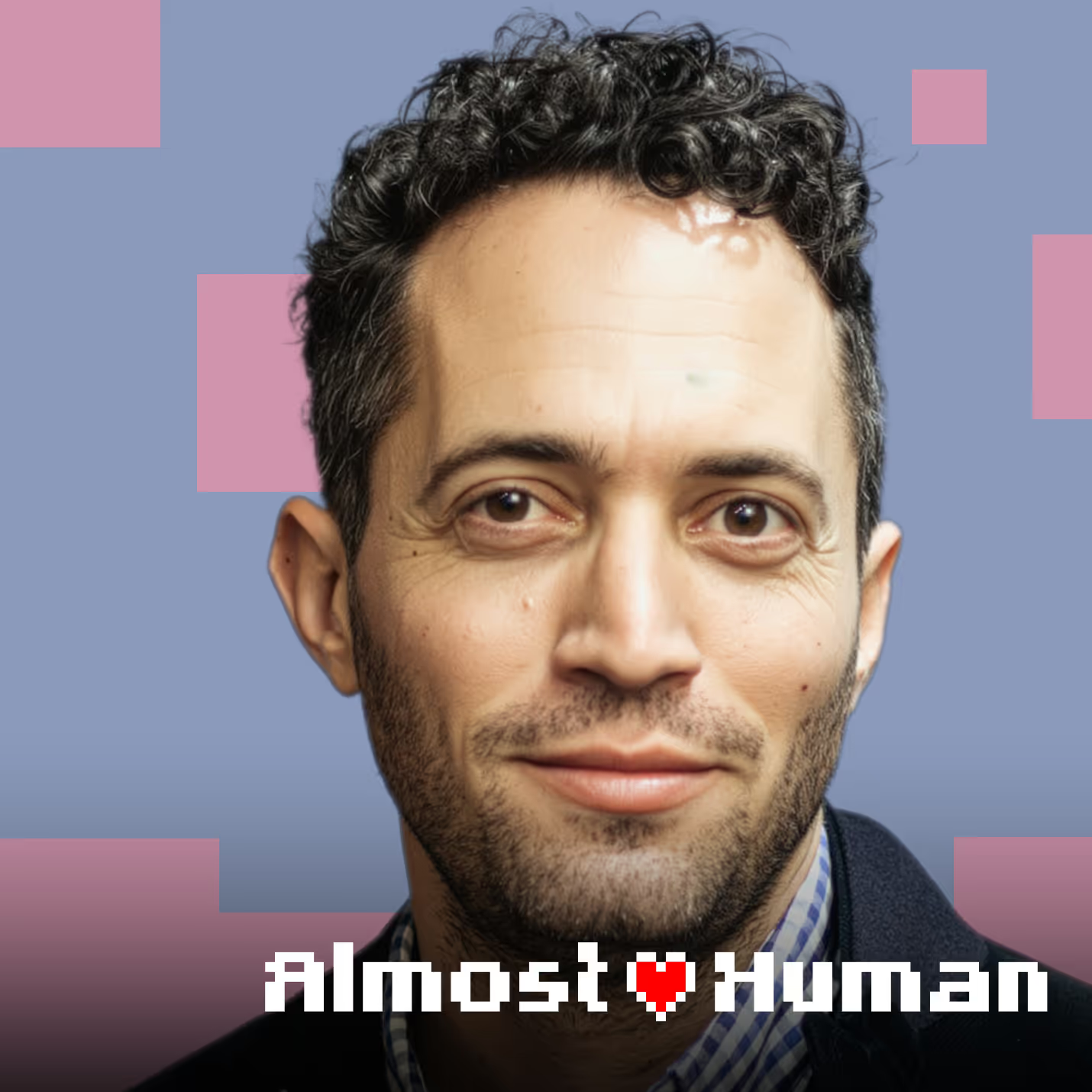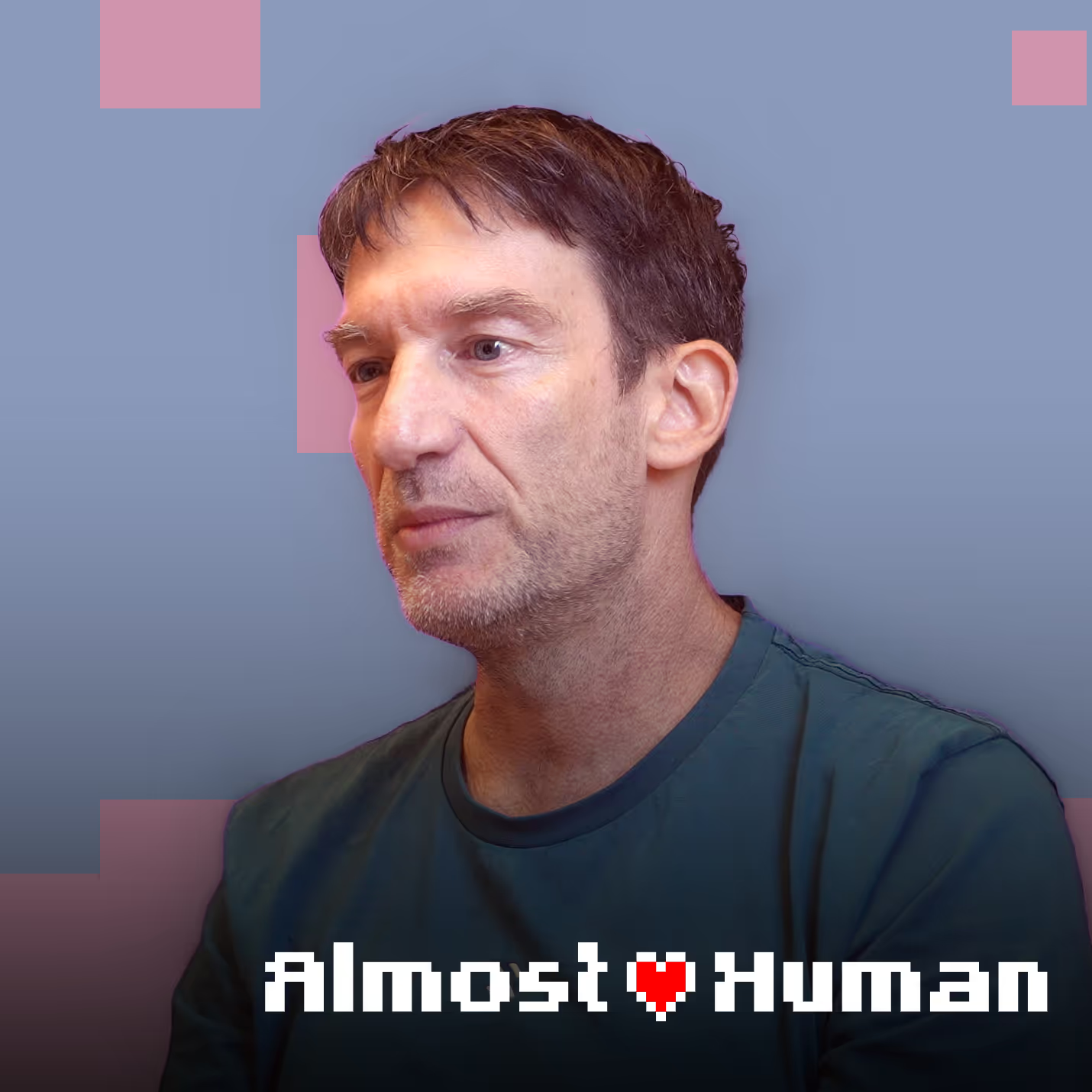Aryeh Bourkoff



How can values create value? On this podcast, Michael Eisenberg talks with business leaders and venture capitalists to explore the values and purpose behind their businesses, the impact technology can have on humanity, and the humanity behind digitization.
Aryeh Bourkoff



How can values create value? On this podcast, Michael Eisenberg talks with business leaders and venture capitalists to explore the values and purpose behind their businesses, the impact technology can have on humanity, and the humanity behind digitization.
Aryeh Bourkoff
Aryeh Bourkoff

Aryeh Bourkoff
Aryeh Bourkoff
[0:00] Introduction
[1:55] Naming LionTree based on Aryeh and his wife’s names
[4:53] Building trust, community, and LionTree’s annual conference
[10:09] Aryeh’s core values on a personal level
[12:52] Bored Apes Yacht Club, digital communities
[15:31] Justin Beiber, digital identity
[17:55] Do we lose our humanity in digital spaces?
[20:36] Zoom, its uses and misuses, and the telephone
[22:17] Masters of relationships vs. transactions
[25:03] Building a firm for relationships vs. transactions
[29:21] Scarcity brings out creativity
[31:30] Staying humble doing multi-billion deals
[34:25] Abraham Accords, the economic future of the Middle East
[38:17] Companies vs. countries
[42:38] Aryeh’s big idea to transform the Middle East
[45:31] The values Aryeh seeks in others
[47:08] Aryeh’s motivation
[48:50] The problem Aryeh would most like to fix
[52:12] ESG and climate change metrics for businesses
[56:06] How Aryeh built his career; deciding to be a specialist
[57:12] Why Aryeh is on Instagram and not Twitter
[1:00:18] What makes Aryeh cry
[1:01:43] How Aryeh wants to be remembered at the end of his life
[1:01:45] What the title of Aryeh’s biography would be
[1:02:57] Aryeh’s birthday resolution
[1:04:34] Aryeh’s birthday advice for others
Aryeh Bourkoff, the Founder, Chairman and CEO of LionTree, an independent investment and merchant bank, advising and investing in transformational CEOs and the companies they lead. Aryeh founded LionTree in 2012, during a time of unprecedented disruption across media and technology.
Dubbed “media’s hottest dealmaker” by Hollywood Reporter, Aryeh is known for advising on some of the largest transactions in the space, including the recent spin-off of Warner Media from AT&T to create Warner Brothers Discovery, and the sale of MGM to Amazon.
On this inaugural episode of Invested, Michael hosted
Please enjoy and rate this episode 5 stars wherever you stream your podcasts!
Michael Eisenberg 0:00
It is my absolute pleasure and honor to welcome Aryeh Bourkoff as our first ever guest on Aleph's invested podcast. Aryeh is a great friend and the founder, chairman and CEO of LionTree, and independent investment and merchant bank, advising and investing in transformational CEOs and the companies they lead. Aryeh founded LionTree in 2012, during a time of unprecedented disruption across media and technology. He's known for his work advising on some of the largest transactions in the space, including the recent spin off of Warner Media from AT&T to create Warner Brothers Discovery, and the sale of MGM to Amazon. LionTree is deeply immersed in sectors shaping the world around us from gaming and sports to AI, software and Web3. And while they're based in New York, they have a growing presence here in Israel and the region. Importantly, values sit at the core of what LionTree does. And it's been a pleasure getting to know Aryeh over the last 25 years and LionTree over the last decade, and their unique perspective on where the future is headed, and how businesses can build and capture value in an evolving market. Aryeh is a graduate of the University of California at San Diego. He resides in New York City with his family. Aryeh, we're so happy to have you on the show with us. Let's get started. It's a true honor to meet a man who personifies values that create value.
Aryeh Bourkoff 1:30
Have you done one of these before? Have you ever done a podcast?
Michael Eisenberg 1:35
I've never been the interviewer. I've been the interviewee many times. Have you done one?
Aryeh Bourkoff 1:40
Yes, I've done over 100.
Michael Eisenberg 1:42
I know. Okay, Aryeh. This is so fun.
Aryeh Bourkoff 1:46
I haven't really been a subject of too many. This is my first one with a close friend and a first one in Israel.
Michael Eisenberg 1:56
There you go. There's a first for everything. All right. So, welcome, Aryeh, thanks for joining us here at Aleph in Tel Aviv. Actually, I want to start on something deeply personal. For those who don't know, LionTree is an amalgam of two names, “lion” and “tree.” “Lion,” of course, is the English of “Aryeh,” your first name, which is a Hebrew word, and “tree” comes from your wife's name, “Ilana.” I think in our world, it's pretty bold to name a firm, after you and your wife, even in symbolic terms or hidden meanings, so to speak. Why did you choose to name the firm LionTree?
Aryeh Bourkoff 2:34
Well, why is that bold?
Michael Eisenberg 2:36
Why is it bold? I think it's bold, because there's something family about it, and maybe even less business about it.
Aryeh Bourkoff 2:42
Well, I guess I would say it was important to me to have a company name, that for most people that are not as insightful as you and your listeners, would not be identified with me or my wife, but would belong to everybody else: employees, partners, and entrepreneurs and whoever we do business with business with today and well into the future, that they would be able to call the firm their own. That was the most important thing for me. And so that's why I did not want to have a name publicly associated with myself, for everyone to, to be able to understand, you know, out in the open. At the same time, I knew it would take blood, sweat, tears, sleepless nights to build it. And I want it to have it be deeply personal to me and my family in a very inner being way that the journey has to be to make it worthwhile, and it will take everything out of me. And them, shared sacrifice, and the kids too right, and, and it's only fair that they would be identified with it. And it's almost better that they're identified with it in a sort of private way. So you have this, like everything in life, dual meaning. So for everyone else, LionTree is theirs. And it has many definitions. It has the strength of the lion and the forward ferociousness of moving something forward that has to be entrepreneurial, and the fragility of nature and the tenderness of what you have to build.
Michael Eisenberg 4:38
And I'd say the deep roots of the tree.
Aryeh Bourkoff 4:39
The deep roots of the tree, you have to go in to go up and which is a real theme for us and for everybody in my view right now. But for me personally, it's always about the attachment to me and the family and what it takes in the sacrifice.
Michael Eisenberg 4:53
One of the reasons I ask the question is you know, I've been to your conference Media Slopes, which is you know, I don't miss, it's my favorite conference of the year, no offense meant to anybody else. But I've said this before, it actually almost feels like your Bar Mitzvah sometimes when I'm there, because it really feels like family's invited. And it's all these high powered CEOs and executives from around the industry and around the world. But everyone feels like one kind of LionTree family. How do you explain that? Like, am I the only one who feels that way, by the way?
Aryeh Bourkoff 5:23
No, I feel it's a community. It's even hard to call you and everyone else clients, you know, which is the nomenclature of a bank. Or even entrepreneurs, because obviously, you are an entrepreneur or client. And so as sort of the other people that are in attendance, but it's really a community. And it's the reason why LionTree exists. And we have no reason to exist, no one said, out of the blue and called me saying “by the way, I really think that, you know, the world needs another bank or the world needs LionTree, the world needs you to create something,” no one called me and said that, although a few people did encourage me, and everyone knows who they are. But the group of people that come together really make up the company, it's the inside and the outside and inside outside journey, and you never lose sight of the pillars of it. And so it's not solely the people inside, even though they're very important. It's really also the people outside that feel they're invested in the journey. And with each other. That's the most important thing that the community of people is not just through me, it's really with each other. And the minute that you create a forum for them to do business with each other, then you break down borders in a very comfortable way. And it's a different sort of platform of leadership, in my view, that's very important for this moment, that has an elasticity to it beyond just the product of mergers, acquisitions, raising capital, taking companies public, but also could be a platform for purpose, other things that we don't foresee yet, filling the gaps in our society where there are needs, emphasizing certain geographies that are important, that you see trend lines, and to do that, and to be a good adviser of this platform for this community, you have to be learning with them, and for them, ahead of time in some cases, which is a responsibility and frankly, the prerequisite for being a good advisor. Your advice gets very stale, if you're not learning.
Michael Eisenberg 7:30
So one of the things, you know, maybe the core ethos of this podcast, and what we're talking about is, is how values create value. One of the core values, I think you and I share, we think about a lot, is trust. You talk about the conference, or LionTree as a community, I mentioned the word family, certainly for communities to thrive, there needs to be trust. And for families to stay together, there needs to be trust. I'm always struck by how there's Chatham House rules, basically, at the LionTree conference, but they're never, you'd never stand up and say, Hey, this is Chatham House rules, you can't leak anything, but nothing leaks from there. There's like implicit trust in the room. Where does that come from? And do you think that's actually important for creating economic value for you, and for others out of it?
Aryeh Bourkoff 8:20
It's interesting, because people, I'm sure you've had this experience, and your listeners, when someone tells you something in a conversation, and it's a very close relationship, or a close friendship, but they feel the need to say, by the way, this is between me and you. And I will say to them, well, you're the one choosing to tell me, like I didn't ask you to tell me anything, but like, but then you could say, of course, it's between me and you can trust that. But if you have to say that, you know, you're obviously, they’re either saying it because they feel like they have to, or they don't really fully trust you or something like that. But I'm always saying like, by the way, like, we don’t have to have a conversation, you feel the need to get off your chest, you know, then you're taking the risk that this is a trusted conversation. So there's a certain amount of intent. There's a term called tensegrity - tension, integrity, tensegrity. Interesting. It's a structure, if you look it up, that has no pillars that holds up this structure. It's almost like when your kids went to school yard, and had a structure that you can climb up, that had the tension of the structure hold it together had perfect integrity of the structure. That's the room. So everyone has the right amount of integrity and tension holding it together, where there is no need for any artificial pillars, that you have to sort of like use as a crutch, because there's perfect tension and integrity in the room. And when you create that, you don't have to say, Oh, this is between me and you or no posting to social media accounts because if I say that to everybody, then it's like almost like I imply that I'm worried about it, or that the room was not created properly. And it's supposed to be created properly. Everyone is in the right community and doing the right thing. So therefore, I don't have to say those things.
Michael Eisenberg 10:09
So quite obviously, one of your core values is trust. And having people around you that you trust and that trust you and trust each other, what else would you say are your kind of core personal values, because LionTree is created in your image at the end of the day. You're the founder, you're the CEO, you're the leader, you have a great team. I know many of them. But what are your core values on a personal level? Before we get to the business?
Aryeh Bourkoff 10:39
I said to, I think, my kids on this vacation, if you had to put one word on a billboard, for everyone to see, that you want to transmit to society, what would it be? And, like one word only, and it's a great exercise, I played with them sometimes. And your team asked me while you were freshening up in preparation, or doing makeup or something for the podcast, what my value is, so it was
Michael Eisenberg 11:10
Some of us are not good looking to do, you know, we need help
Aryeh Bourkoff 11:15
What my core value is, I said the same word that I would put on the billboard, which is empathy, which is another way of saying, seeing people where they are. And,
Michael Eisenberg 11:24
By the way, you know, we have a company that we're invested in called empathy.com.
Aryeh Bourkoff 11:28
I know, Ron is a great CEO, a great founder, you've introduced me to him. And I think it's a great company. And, but empathy is a great concept, because in order to see people where they are, you have to be very secure in who you are. And, and most people focus on like, what your game plan is all the time. But what really matters is how it lands to the other person. And to do that without losing sight of yourself is I think is really, really important. That's a very big value for me. But you have to do it in a sense that you can also make sure you're taking care of yourself. And that balance is really, really critical. So I think, you know, love of self and empathy for others, and that balance and getting it right is a blessing and a burden, a challenge and a gift. And I think the whole company is built off that.
Michael Eisenberg 12:26
What are some of the words that your kids put on the billboard?
Aryeh Bourkoff 12:31
I think they put like, like, charity, they put words like confidence, they put words like practice, you know, depending on their age. –But Dad, don't tell me to study for a test.– Yeah, exactly. Exactly.
Michael Eisenberg 12:52
So speaking of like community, you were involved with the Bored Apes Yacht Club, and some of the music videos around that and these digital communities are starting to proliferate. Why do you want to be involved with something like the Board Apes Yacht Club? What do you see the future of that kind of community as? And then, what do you think are both the opportunities and the pitfalls in these kinds of digital communities?
Aryeh Bourkoff 13:21
Yeah, well, I mean, I think one is I, I believe in insurgency. And curiosity, which could be another word, by the way, for a billboard. I think that we, I spend a lot of time with the established companies, most of my time, I frankly, could spend all my time with them at this point in my career, and that's most of my community. But I don't want to be stubborn, or have tunnel vision around just the establishment. I want to really understand what's around the corner, which speaks to knowing people like you and understanding new companies – Are you calling me an insurgent? – Oh, yeah. Yeah. You're, you're always with, you're always with the curious and the new. But hopefully getting to the new establishments as well, you know, and, but so I would like to know what's around the corner and what could take off. Within that you're gonna pick up some findings that make it all the way and some things that are just kind of flashes in the pan. And I guess that's your whole world in venture at the end of the day. But for me, it's also how those can relate to the large companies and what they may be interested in and how they connect the dots not just from an investing perspective, but a business development perspective and a R&D perspective. And then reforming new media companies, which is in a constant state of innovation and transformation. Probably one of the most innovative sectors all the time. It's transforming itself, music, media, other forms of entertainment. One of America's best exports, I would say. So the Bored Apes to me represents animation. Think about Pixar and Disney. And you know, we all grew up with like, the Bambi’s of the world, but you know, new ones like that. Come on. Yeah, exactly. But also the way to have digital identity, you know, how do you create a new identity for yourself? That's not the physical or an avatar? And then how do you use that identity to then form a new music label, a new movie studio, a new community of IP, that's not encumbered by the old IP. So if you bring a Justin Bieber together, and Justin Bieber puts a song out, it's going to the music label. But if you put Justin Bieber on his ape with a new song, that ape has an unencumbered level of an IP.
Michael Eisenberg 15:43
Is that okay? I mean, like, it's still Justin Bieber
Aryeh Bourkoff 15:45
Well, depends on the event that's up for grabs, right? So like, can you create a new level of communities and labels and music and media companies and art companies and fashion companies and commerce enterprises with a simulation, than just the kind of age old infrastructures that we're living in today? So restart,
Michael Eisenberg 16:06
I mean, I need to think about this, like there's real Justin Bieber and fake Justin Bieber, there's like, is that the same person? Is it some sort of digital twin? Or is it like a different person?
Aryeh Bourkoff 16:17
Of course, you can't go see the Justin Bieber gorilla in concert, necessarily, right now? Now, you wouldn't pay the same amount for that. Right?
Michael Eisenberg 16:25
I wouldn't pay to see it either way.
Aryeh Bourkoff 16:28
Your kid, your kids, your kids, you may not want to be screaming and looking at Justin Bieber for pictures if it's a gorilla, you know? No, but I think there's a chance to create these new communities and, and new media models and gaming and sort of like immersive experiences that go to the 4 billion gamers of the world.
Michael Eisenberg 16:51
But how immersive is it? Like, you know, even if Justin Bieber is on stage, or Madonna is on stage, and I'm dating myself, or somebody younger is on stage. I'm still in a concert environment with a lot of other people. There's intimacy there, there's real community, in this kind of digital form of Bored Apes, there's not real intimacy or community. Like, why would I want to be there?
Aryeh Bourkoff 17:12
No, I think you need both. I mean, there's, there's, there's Coachella and things like the middle beast, and in Saudi where you go, and you watch concerts, and it's fantastic. And you go to a basketball game, and, and there's immersed, there's physical experiences, which are irreplaceable. But then you always are doing social virtual experiences, whether it's on, you know, Tik Tok, or you're doing things that are more, you know, virtual in nature, even Dungeons and Dragons when you grew up and other games you want to play that are more fantasy. You know, I think people look at both. And I think I think the Apes, and I think these Metaverse areas are just another form of escape. But I think it doesn't replace the physical. I think you do both.
Michael Eisenberg 17:55
When we think about all the digital places people who have escaped to today, do you think we lose some of our humanity in these digital places?
Aryeh Bourkoff 18:05
Yes, for sure. I am a face to face person. – I know. – Like, I mean, frankly, I did more traveling during COVID, than before COVID. Just because I saw it as a competitive advantage. And then I trusted myself to create safe spaces more than someone else dictated them for me. And, and I thought there was more like intimate experiences that you could create, if no one else is doing it. And so it's a differentiation, but I like the face to face better. And it just sparks creativity and, and conversations and there's environments around you. But I also like, you know, virtual experiences that are like, you know, listening to music with your headphones, and, and having some alone time and stuff like that. I wouldn't get lost in the Ready Player One for days on end, you know, kind of Metaverse like, experiences for me or, don’t want my kids to be in games forever, or living in alternate universes, right. But I do really appreciate that gaming can be married with education as a learning tool, or Simply, for example, educational tools to learn how to sing or play piano – Full disclosure, Simply is an Aleph company. Appreciate the plug. Download in now. – Yeah, these are virtual ways to, to learn and to engage in education that you may not be able to do physically all the time.
Michael Eisenberg 19:43
Do you worry about a global decline in creativity, the more time people spend in kind of the virtual space?
Aryeh Bourkoff 19:51
No, actually, because I think that we've had a renaissance of creativity over the last few years. I mean, look at streaming, and content creation, I think we've had a glut of creativity, frankly, and I think COVID has reduced our creativity, in a lot of ways, I don't think you had as much, you know, particularly great, you know, songwriting or, you know, creations or art going on through the pandemic, that you would have thought, although if you think back to 1919, or what I've heard about the influenza, a year after influenza was over, Carnival started – interesting. – That's what came out. So if we're about on track for that, then right now is a spark of creativity. And he made it come out of it,
Michael Eisenberg 20:36
Full disclosure, I hate zoom, I really, really hate zoom, I didn't make investments over zoom during the, during the pandemic, I'm kind of a face to face guy.
Aryeh Bourkoff 20:45
I hate Zoom too. Zoom has a utility for maybe capital markets and other things that you may not want to be doing in person anyway. And zoom could be a good replacement for that. But zoom also has had a captive audience for over three years, and not a lot of new product innovation. – Yeah. Right. – So think about that for a second, you've been on Zoom, and you're not you're having the same experience, which is like a kind of a, a communications tool, right? You're not, it's not really a rich experience,
Michael Eisenberg 21:13
I even find it, by the way, less rich than the telephone. Because it feels like people are distracted a lot. It's almost a dehumanizing experience in that it puts the screen between you. Whereas the phone goes into your ear, and therefore like music, it's a more experiential experience. Whereas this visual kind of oddness on the screen, I find terribly distracting and dehumanizing.
Aryeh Bourkoff 21:37
Yeah, so someone sent me a text today saying, can we get together in the new year? You know, will you be in Los Angeles anytime soon? Or if not, let's do a zoom. And I said, I won't be in Los Angeles anytime in January. And Zooms are so 2022. Come find me in New York, or somewhere else I'll be traveling.
Michael Eisenberg 22:03
So this person wants to have a conversation with you, you mentioned capital markets people, Zoom is good for, because they actually never really want to be in the room in the first place, probably doing all these meetings. Your business, in particular, has been built on relationships. And so as you think about transactions versus relationships, try to delineate for me, what makes somebody a master of relationships, versus somebody who's really great at transactions or firm is really great at relationships versus a firm that's really great at transactions.
Aryeh Bourkoff 22:42
Great, great question. I think people do what they want to do in life, and with who they want to do it. I believe that, you know, relationships first have to be earned. And a transaction also has to be earned. So one doesn't necessarily lead to the other, they have to really go together. So if you have a relationship, it doesn't mean that you're necessarily going to be called for a transaction, if you don't have experience doing transactions with that person or with that company. So I always say that, like, we want to have enough relationships and the creativity, around coming up with ideas for those relationships, as if that bar is so high, that you want to come through for your friends, not that you feel like it's entitled, that they're gonna call you and say, ‘Hey, we thought of something, and we're calling you’ because there's a certain amount of competition in this business, that you want to see that relationship be, you know, sort of, you know, justified by your own sort of performance all the time. And at the same time, you want to be treated fairly, right. So like, I think, when you're doing a transaction with a relationship that you have, then you're also going to want to come through for them and, and perform on the execution of that transaction much better than just sort of like calling it in. So I think everything goes back to quality and care, and the community and coming through for the people that you're working with, in a way that's very, that's very high standard. But I don't think that we're going to do every transaction with the people that we that we work with, I think they're going to do the deals with the people that they should be doing deals with, and that we're going to have to work very hard to earn our keep every single day and that goes back to creativity and coming up with the best ideas. But that's informed by the fact that we should know each other really well. We should know their goals and objectives. And that takes a long time to get. So if we know what the objectives of those CEOs are or the investors are, then we should have a head start in knowing what the transaction should look like and should have a better and trusted, dynamic and trying to get them done for them.
Michael Eisenberg 25:03
David Zaslav, the CEO of Discovery, I know said about you that you really get people, you get that it's not a transaction, you kind of get the creativity around it. I assume that was in the context of the Warner media deal. But I think there's something else, which I want to dig into, which is, how do you think about the difference between how you build a firm for the long term versus how you build a firm for transactions of the short term? And are they radically different in the way you choose to build a firm?
Aryeh Bourkoff 25:34
Yeah, so I always say, well, first of all, I have to say that a transaction in and of itself, transactions and of themselves are important, – yeah, they pay the bills, they pay the bankers, – they pay the bills, and, you know, you have you have to be commercial, about doing business, and you have to also know how to get things over the finish line, everyone in these businesses, you know, are do have constituents and do you have shareholders and stakeholders that they're counting on, – in your case, your family, you better get it right – or employees or like, you know, the or the future in the future constituents of the company, but I'm saying the CEOs have shareholders, and if they're entrusting us to do transactions with them, then we have to make sure that we come through for them, but we don't want to, we want to be an additive dynamic to that. So I think transactions are important. You just want to have a lot of shots on goal for it. My point is, you don’t want to make decisions for the here and now at the expense of tomorrow, if you look at any company that you invest in, and you determine the valuation of the company, and you look at the discounted cash flow model, that company 80 to 90% of the valuations in the terminal year, which is determined by the Perpetuity Growth Rate, discounted back – 100%, – right. So that means you have to figure out what that business looks like in the nth year, at the end of the day. So if you're making decisions based on what the business looks like, at the end of the day, just kind of back that has the highest amount of opportunity in that nth year. That's how I think about LionTree. What's the best opportunity I have for the company at the end of the day? And if I defer towards that moment, if I'm afforded the opportunity to defer, which goes back to liquidity and paying the bills and having the right people in place, then I'll have a better outcome to play long.
Michael Eisenberg 27:21
It's really hard to do that, most people can't think that way at the end of the day, I mean, quarterly bonuses, annual bonuses, I mean, most people don't think that way, how do you you kind of keep yourself on that road to think that way?
Aryeh Bourkoff 27:35
Well, on one on one level,, it's the mindset of an equity holder, right? Just to be, you know, more financial about it, it's, if you're building enterprise value, and you're, you're incentivized by the growth of the value of the enterprise, and you own the equity enterprise. That is how you should be thinking about it, right? Because you're incentivized to go long term to give the equity value, right? If you're incentivized to maximize cash, then you may not be thinking that way. But I kind of think that cash tomorrow may have more opportunities that you don't see than cash today, – what do you mean by that, – being that it goes back to go back to the Tree of Prosperity, and, and your Divrei Torah, and everything else, so like Yose. So if you have seven years of plenty, followed by seven years of famine, and you were smart enough to know how to save up during the seven years of plenty, and you had a differentiated edge during those seven years of famine, and you knew how to create systems and frameworks to sustain, I read the last one, right, but you got to sustain, then you may have a competitive edge in markets and periods of time where that cash is more valuable in the future for opportunities that you don't see today. And there's some optionality around that. Right. And I like that. Because when you build businesses, at the beginning stages, you have to, you have to sprint very fast, to make sure that you have a successful startup, maybe even scale up. But what you're really trying to get to is an opportunity to walk briskly and have a very efficient, long term enterprise that has sustainable value. That's really what you're trying to get to.
Michael Eisenberg 29:21
One of my takeaways from what you said is you're actually pretty excited about the years of famine we have upon us right now in this down market. Is that fair?
Aryeh Bourkoff 29:27
Sure. I'd like to I like the more challenging moments,
Michael Eisenberg 29:31
because it brings out creativity, makes people more raw,
Aryeh Bourkoff 29:32
it makes you understand what your competitive advantages are, it leans on your community – shows what real value is – shows that real value is and values are and values are right. Scarcity and scarcity is a much bigger and better catalyst for decision making, then I think abundance.
Michael Eisenberg 29:52
I totally agree with that. What do you think that is?
Aryeh Bourkoff 29:57
Because you have to make choices. You have to prioritize.
Michael Eisenberg 30:01
There's a rabbi who I always admired. His name was Nachum Rabinovitch. He said, hard decisions are not between good and bad options and good and good options there between the lesser of bad options. And scarcity brings that out, I have to make the choices of lesser bad options and it forces creativity. So if I can invent maybe a third option.
Aryeh Bourkoff 30:17
That's right, the hard thing is the shift. The hard thing is when the scarcity starts to move through abundance, or the abundance of scarcity, it's the Delta. I think it's like when people started the pandemic. And it's as if they said to me or said to you, by the way, Michael, is your email not working? And you said, no, no, no, my email is not working either. Like, the whole broadband system is down, no one's email is working. And all of a sudden, you say, Oh, that's great. I could relax. I could go home, spend time with a family, not check my email. It's great. And then about a year later, you came to me and said, your email, it’s still not working, right? I'm like, no, no, it's been working for weeks. Now. You go, oh, no, that delta, that shift that you missed, is the scary part.
Michael Eisenberg 31:06
Did you find that by the way, there is a side point but like during the pandemic, you found out kind of what people's true character was, on some level, because of the scarcity, because of the distance. And even now in this down market, I feel like truly resilient people are standing up, people who are true to their values are standing up versus you know, what [George] Akerlof might call the animal spirits that are coming out?
Aryeh Bourkoff 31:30
Yeah, I mean, I like I mean, it goes back to humility, right? Like, I think humility creates power. Not the other way around. And I think that, I think if if a scarce period of time or a challenge period of time, helps, you know, highlight that humility or helps the sheen come off, then you see people's character, but I think it's just helpful to get to what ultimately, I think is a great business value, which is self awareness.
Michael Eisenberg 32:02
How do you do that? So, you’re doing billion dollar transactions, or multi billion dollar transactions, you're in the CEO’s office and boardrooms of Fortune 100 companies? You're running around the world talking to capital providers, which we'll come to in a second. How do you stay self aware and humble in that environment?
Aryeh Bourkoff 32:21
Oh, because you're wrong most of the time, right? I mean, what you get from being in the public markets, which I used to do covering stocks, and I think most people have P&L’s every single day. And that keeps a certain amount of truth, and self awareness front center right. But you shouldn't need a P&L to be self aware, right. I get it actually, in the middle of the night, I, I'm always thinking I'm always in my head. And I always sort of emerge at three in the morning to like a level of subconscious and spend an hour, not really awake, not really sleeping. But if I actually tracked down the Fitbit and everything, my sleep patterns, and it's true three or four in the morning, I'm self correcting. – Oh, yeah. – And
Michael Eisenberg 33:10
I'm just not sleeping well, but no,
Aryeh Bourkoff 33:12
No, I sleep very well until three in the morning then I get up for an hour and self correct, but not really up. And then I go back to sleep for an hour. And then I'm a different person in the morning. And there's it's about self correction, self growth, working things through, being truthful with yourself and then getting up, you have to be you have to be self aware to do that. It's about the tree going in to go up. And it's but but that's fine. If you live and operate a business alone, but you're operating a business with others, you kind of are counting on everyone else to do the same thing. And if people have a, ego is basically, you know, a sort of inflation above self awareness and insecurity is sort of a discount below self awareness. I consider ego and insecurity sort of like mirroring sides of each other with self awareness being the par value.
Michael Eisenberg 34:02
That's an interesting line. Okay.
Aryeh Bourkoff 34:05
That's how I think about it.
Michael Eisenberg 34:07
Where’s self confidence in that, by the way?
Aryeh Bourkoff 34:10
I think there's nothing wrong with self confidence, as long as it's balanced with humility. – Yeah. You need a certain amount of self confidence to get out of bed and enter your job every single day. But has to be backed up by results, right. Yeah.
Michael Eisenberg 34:24
So you're spending. Speaking of long term and long term thinkers, long term relationships. You've been spending a lot of time over the last bunch of years in this region, broadly, developing relationships. When you look at this world going forward. There's obviously been the Abraham Accords, which have connected the United Arab Emirates, Morocco, Israel, Sudan, and maybe who knows, maybe Saudi Arabia in the near future. When you think about the future of the world and your merchant banking business, a decade from now, how does this region play into it in a way it hasn't in the past? Or does it for that matter?
Aryeh Bourkoff 35:08
I love this topic because, you know, you go through life and you wonder how many things actually change in the world. And we and I think everyone that lives in Israel and everyone that studies Israel and is pro-Israel is a student of history and is very focused on geopolitics to some extent, right. And so you're aware of what happens around you. And some things are always fluid, that’s true to some extent here. But very rarely do you see like a cementing of a structural shift as much as you'd have in the last few years, which is not just about alliances that you've talked about, but also a de-emphasis of ideology, and sort of an emphasis of business as a currency, which also goes to generational changes, that the newer generation, maybe younger than us, they have just decided, you know, just to get on with it. And, and travel and focus on the gaming and the metaverse and the business transactions and the tourism. And, and, and doing things in the right way, and maybe investing. And obviously that could go to an extreme as well, by the way it can, it can’t just be a business. culture matters a lot. And history matters a lot. Where we're doing matters a lot. But I think it's really encouraging. that sort of the Arabian Peninsula and the Gulf States and beyond the ones you mentioned. I mean, you could put Oman and Bahrain and others in there too, and Israel have so much in common culturally. And in some ways were younger than Israel, and the way they've been built and, and opportunities to do business together in capital, in capital markets, in appreciation of the uniqueness of Israel's technology, industry and making something out of nothing vis a vie like, you know, water and scarcity and cyber and all the best industries that we have here in Israel,
Michael Eisenberg 37:07
Yeah, scarcity turns out to be a great natural resource for Israel.
Aryeh Bourkoff 37:11
But those countries have cared about things that Israel hasn't cared about, like architecture, in some ways. And, you know, and traffic, the grid, if you drive through, you know, Dubai and Abu Dhabi, like there's no traffic, you know, they figured that out, you know, so, you know, we
Michael Eisenberg 37:28
We haven't, these roads were built for horses and carriages, and then they tried to put cars on him, it doesn't work that well.
Aryeh Bourkoff 37:35
Yeah, so I think there's some learnings there. But I like the fact that there's a lot of opportunity. Now I don't want to be sort of utopian around about it. Because in this part of the world, things could change on a dime. And, it's sort of like, you know, rough neighborhoods, right, but better to protect yourself around rough neighborhoods with friends than alone, and Israel has been alone for too long. So it's nice to have friends and, and frankly, Egypt and Jordan have been friends for a long time. And hopefully these friendships now are the beginning of a very long term relationship. But
Michael Eisenberg 38:09
It's your view, I think that in what you said right now, that business actually is almost a better carrier of that relationship than politics is.
Aryeh Bourkoff 38:18
Look, countries operate in their borders, businesses operate cross-border, especially multinationals.
Michael Eisenberg 38:23
Yes in the last 100 years, that's the case, or actually, since the British, the British East Asia tea company, but certainly today.
Aryeh Bourkoff 38:31
So businesses operate cross-border and multinationals then are represented by CEOs and board members, that also have to have multi-jurisdiction perspective and investors that come from many different areas and appreciate a multi-jurisdiction and geopolitical perspective that has to obviously subjugate ideology. And put first and foremost returns and purpose and what the objectives of the businesses are, versus what the border stands for. And those businesses are very complex to manage. on an international level, you know, you think about those businesses that come out of the US, like the Microsoft's of the world, the Apples, the Amazons, the Googles, are the Disney's of the world. Some of us haven't even really effectively gotten into the Gulf or Israel, like Disney, or like Warner Discovery. But there's a lot more to still grow and to do. And I think that like that opens up a lot of new investors and new business partnerships and commercial opportunities that will, I think, draw attention to this region that will benefit Israel in process that will bring a lot more companies beyond tech like other industries that the supermarket umbrellas of tech, maybe were just too generic, and now we'll get into the different parts of the the industrial economy. So retail, commerce, luxury, media, healthcare, financial technology, defense, security, you know, energy, water
Michael Eisenberg 40:06
Nine and a half million Israeli is not a big market. 250 million people in a region at this point is a big market.
Aryeh Bourkoff 40:11
Yeah. Yeah, but 9 million Israelis and 10 million people in the Emirates, not all Emiratis obviously. But, a lot to do together.
Michael Eisenberg 40:20
How would you react to the following comment? Business and multinational business is fundamentally built on trust. Politics on some level is bloodsport, and, you know, it's kind of coalitioning overcomes lack of trust on some level. And so business becomes a better carrier of that trust over time maybe than politics?
Aryeh Bourkoff 40:43
Well, I'm not sure about that. I mean, I think business has metrics. Politics doesn't have metrics.
Michael Eisenberg 40:50
Well getting elected, in places where people get elected at least. Which is maybe the wrong KPI.
Aryeh Bourkoff 40:53
Yeah, I think the business metrics, or I'd say milestones are really, really important to verify. Yeah. But I think relationships are important in both cases. – Interesting. – And, and I think, you know, the violation of those relationships, or the violation of those milestones, obviously can be catastrophic. But I mean, at the end, at the end of the day is personal, everything is personal at the end, especially in this part of the world. I think relationships are really, really important to foster. And I think those are, that's how things ultimately get done.
Michael Eisenberg 41:26
So if I asked you, okay, you just described to me a vision for the region, what's the business project, or projects you'd like most to come to fruition in this region? What would it be, without giving away state secrets or business secrets?
Aryeh Bourkoff 41:44
I would like to have, I would like to see a mutual appreciation of competitive advantages come to play in the region. – Is that a business? – Yeah, for sure. That's a quilt, I'd say. Israel has some clear competitive advantages, you know, let's just say it's tech, but there are obviously other ones, you know, culturally, tourism and so on. I mean, I'm sure a lot more Israelis are traveling to the Gulf states than the Gulf state constituents are coming to Israel right now that has to get rebalanced, that goes to media and narratives and making it really fun to go visit Israel.
Michael Eisenberg 42:21
Well, it also goes to the fact that Israelis have like an itch to travel the second any part of the world opens up, it's like, oh, let me out of this
Aryeh Bourkoff 42:27
Shpilkes. I think a balance of tourism would be good. And that I think
Michael Eisenberg 42:35
That’s not a big idea. You’re so creative, it must be better than the beach in Tel Aviv.
Aryeh Bourkoff 42:38
The big idea, I think, is a real capital markets hub in the region. – I love that. – So like, you don't think if you're a US company of listing in Tel Aviv, or Abu Dhabi, or Qatar or Saudi right now, but you could, if everyone got together in a regional exchange, just like you used to think about listing and LSE or Luxembourg. So I think it's a very interesting part of the world, timezone wise as an alternative to the US or China, to list in this part of the world. The New London, the new Europe, to season companies here, with a really interesting emphasis, which is based on growth and tech and you know, long term capital associated with it. This is a great place to foster new capital markets activity with longer term oriented capital.
Michael Eisenberg 43:34
I think that's an amazing idea. I’d be an investor in it, I would love that. Related to that, so the media loves to kind of talk about the evil villain of the day or the bad leaders of the day, Sam Bankman-Fried, and what's her name Elizabeth Holmes at Theranos and take your pick. You work with a lot of leaders, you've actually called out that we need more trust and empathy and reliability of business leadership. Who is the most inspirational or trusted leader that you've worked with over your career?
Aryeh Bourkoff 44:15
Well, you.
Michael Eisenberg 44:19
Cut it out, flattery will get you nowhere over here.
Aryeh Bourkoff 44:23
I try to accumulate relationships based on loyalty, curiosity, I have as much room in my set of relationships for the loyal as well as the new and the curious. Like they're equally important to me. The only way you get ejected is based on lack of integrity or betrayal of the trust effectively, right. But there's a lot of people that are, you know, hopefully fit into the characteristics of value and values that we're talking about. And the mentorship comes from people like the John Malone’s of the world that I've talked about before, but not holistically. Like I wouldn't consider him to be like, we're not like, we're not the same, you know, like, I'm, I'm sort of like a protege are the greatest hits, I try to be a lot of people that have come before me in different areas, whether it's the media industry or the junk bond industry or the digital disruptors, or investors I've learned from, and so I get to pick from all of them and sort of like a quilt and get the best of
Michael Eisenberg 45:23
so what is one of the core values that do create value then, what's on that quilt, the core values. Forget the people, what are the core values?
Aryeh Bourkoff 45:31
Never lower your bar of excellence. Don't subject yourself to mediocrity. Like, I hate to do the best you can comment, you know, like, well, then you get up in the morning. So now what. It's the curiosity point. It's trying to get the best out of others as well. It's putting maximum care into what you're doing, it’s thinking about the long term versus just the short term. It's trying to always ask the next question. You know, I think about like, if you watch like a great tennis match, and you're watching like great tennis, and you think you've just seen a championship shot, and then someone like Nadal gets the next one. You're like, I thought it was over. Unbelievable. Unbelievable. I always ask like, when the conversation seems like it's coming to an end, I ask the next question. And that's where all the magic sits, you know, and so like that inquisitive nature is really, really important, I've learned and you pick up a lot of learnings there.
Michael Eisenberg 46:36
How does empathy, the word you used before, show up in your kind of everyday activity?
Aryeh Bourkoff 46:42
Listening.
Michael Eisenberg 46:44
You're a good listener,
Aryeh Bourkoff 46:45
I appreciate that. Well, here, I feel like I'm doing most of the talking.
Michael Eisenberg 46:48
I like it better that way. So I’ve known you're 25 years or so. You were once a cable analyst. Now you're running this very successful, I think inspiring, candidly, merchant bank. What motivates you still today, to get out of bed every morning?
Aryeh Bourkoff 47:11
What's in my mind? What's in my head? – What does that mean? – It's a vision. I mean, it's a vision. It's a vision of what the platform of LionTree could be for others, and for the people that work at LionTree, today and into the future. And we're not even halfway optimized to what I see it could be in the future. And that's a geographic comment. That's not just simple expansion, but like really playing into where the world's going and how centralized organizations play with companies, and investing in those gaps. But also what the platform can create in terms of cultural innovations and new businesses together working with the partners that we have. And it's sort of like the best is yet to come through the different periods and the community sort of demands that we keep playing. And, and, and we're all partners together in this. And I feel like, we're nowhere close to where we could be. It's exhausting. It's exhausting, but you constantly have new ideas and chessboard moving and one move begets another. And so I feel like, I feel like the vision is still like pulsating. And I want to keep playing
Michael Eisenberg 48:25
You used the term where the world is going. Well, where do you think the world is going?
Aryeh Bourkoff 48:29
Well, we talked about it, I think that the cultural areas of sports and gaming and media entertainment, are being used as a currency, just like investing was a currency and business is a currency, to break down borders, and create new hubs. And those hubs are here.
Michael Eisenberg 48:50
Interesting. There you go. So there must be a problem, given that you're thinking about where the world is going in the world that you would most like to fix? What is it?
Aryeh Bourkoff 48:59
Well, I mean, I think, well, we talk about redistribution of wealth a lot in the US, or maybe here also, redistribution of energy, water food could be really interesting in a scarce moment. Yeah, I agree with that. That's the probably the best use of sovereigns, you know, where you're really supplying
Michael Eisenberg 49:20
Is it really redistribution or new generation?
Aryeh Bourkoff 49:24
More efficiencies and redistribution. Because I think, you know, you have to get to countries like Africa or continents like Africa, sorry. And other areas, I think the other thing that's interesting is population trends. China's population is on the downward trajectory, and the only area where population is really truly growing is Africa, and the Middle East, and the Middle East,
Michael Eisenberg 49:49
Israel in particular, but there are other places too
Aryeh Bourkoff 49:51
Okay, so I think it'd be interesting to see like how the world's going to redistribute some of these central resource such as population, demographics shift, frankly, it even changes like voting patterns like in the US, like, post the pandemic, a lot of people have moved around the country, you know, people used to know which state voted red, blue, purple. Like I think a lot of those things will shift in next few elections.
Michael Eisenberg 50:17
Pollsters may have to earn their keep finally, you know that question of global growth when demography is slowing down in everywhere but the Middle East and Africa, do you think like we're in a period of declining growth because of that, economic growth? Yes, yes. How does that reshuffle the deck?
Aryeh Bourkoff 50:38
We're in a period of declining growth with higher costs of capital, both together. And the question is like, where the next cycle of growth truly comes from? And then how you value enterprises when metrics are in decline. So, think about the valuation of that enterprise over the long term. And assigning a perpetuity growth, stress, growth rate,
Michael Eisenberg 51:14
right, when more people are dying than being born?
Aryeh Bourkoff 51:18
Correct. And from a business perspective, you know, when the near term metrics are in the negative, how do you know what positive number to assign to the last year – that's a great comment – if it should be positive. And if it's not positive, then you should then shift your attention to the short term versus long term, and get what you can get today, which is transactional. And so then forget everything I said, right? And then just go get it for the here and now, because there is no tomorrow. And then your value system is going to shift completely, or it's going to really test who can have a purposeful values-oriented life, in moments of scarcity.
Michael Eisenberg 52:06
When they're scared about the long term? Or pessimistic about the long term,
Aryeh Bourkoff 52:10
Which is totally fair. At the end of the day, I mean, if you don't have excess discretionary income, and you have to worry about paying the bills, is it really fair to ask them to focus on things like ESG? And climate change? And, all these world problems? Is it really fair to ask them for that when they have to put food on the table for their kids and pay the energy bills and water and everything like that.
Michael Eisenberg 52:37
As you know about me, I think that ESG is a bag of nonsense. First of all, because it has terrible metrics, no metrics really. And it's just like virtue signal, where people express their values at somebody else's expense. Right. To your point, people can't pay their bills, but we should go do something for ESG. So I think, that kind of stuff, again, if you want to be a values based person, and a values based investor that creates values or values based business creates values, express your values and grow the pie. Don't do it at someone else's expense.
Aryeh Bourkoff 53:11
But let's get but let's double click on that for a second. So like, it's really hard for a public company to squeeze 10% of growth out of an existing enterprise every single year – 100% – It is really hard. For a growth company or venture company, maybe it seems easier. But if you're a public company, and you're established, and you need to grow 10% to get an outperformance level your stock price, that is not an easy thing to do. And it will be increasingly difficult for the next few years. – Agreed. – So then how do you deliver? How do you find that growth? – Tell us? – Well, it goes to what's what's structurally an area of growth in the economy versus what's cyclical downturn in in hopes of for future recoveries.
Michael Eisenberg 54:07
Does it also have to do with the incentive structures – maybe – What would you change in the incentive structures to make it work?
Aryeh Bourkoff 54:14
I don't think it's the incentive structures right now. I think we're in an economic slowdown with higher cost of capital. And I think we're in a redistribution of supply chains, which increases the fundamental cost structures for companies. And then I think you have too many companies that have to reconsolidate to create economies of scale, and give themselves a better advantage on the ability to generate profits and growth without having as much competition as they have today. So I think a reconsolidation of industries will be very, very important, but structural areas of growth right now, security, cyber, scarcity-driven industries like water and energy, like we talked about, food. Those are structural areas of growth. I think commerce is still an area of growth, you know, gaming, sports, consumption patterns like that. But but for major companies, I think you have to give yourself an advantage by growing down, creating cost efficiencies, and, and really focusing on profitability, sometimes much more than even scale
Michael Eisenberg 55:18
For our listeners, Aryeh’s annual letter was called “Growing Down,” which is just a great title for a letter and based on the tree growing its deep roots, but also based on Ethics of our Fathers, the great Jewish text, which offer some great clues into how to do that. Go back to your point about a shrinking global population, which impacts growth. So you're a father of four. I'm a father of eight. There's a lot of people out there not having kids. And even if they're having this below the repopulation rate of 2.1. Why do you think people aren't having kids today?
Aryeh Bourkoff 55:52
You have double the amount of kids that I have. Incredible. Well, I don't know why people aren't having kids these days. It's a good question.
Michael Eisenberg 56:06
You grew up, I think your parents were academics. – Yeah. – You didn't come from money, you've built this amazing business yourself, like me look back and say, How did I do it? How did you do it?
Aryeh Bourkoff 56:17
Step by step. I mean, I view it as a very methodical career build so far. I mean, started with the decision just to be a specialist versus a generalist. Meaning, a generalist approach, which is nothing, there's nothing wrong with it, which is like, let's say, like a bank training, or learning how to be educated in corporate finance, for example, I sort of defer that to later, I want to understand an industry early on, and stick with it. And I knew the longevity of that industry knowledge would accrue to my benefit over time. And this is again, playing the arc of life. And, and that curve. And so I was assigned, you know, Media Communications Technology early, day one effectively. And so I knew that learning the people, the content, the fundamentals, the capital structures around those companies, the people, the pattern recognition would, would give me an advantage over time, and I would keep learning around it. So that specialist dynamic, and that confidence that I had over time that I knew that industry, would allow me to take risk in other areas. So the more confidence I felt in one place, the more risk I could take in other places. – I love that – which is like learning effectively. Put yourself at risk someplace, but then starting over, per se, and that was products, so I started in high yield bonds, then I went to equities, then I went to banking, but all in the same industry segment. And then that allowed me to contribute while I was sort of leaning on people, until I rebalanced.
Michael Eisenberg 57:52
I love that. So you're like a media expert, a telecom expert. I'm on Twitter, you're not as best as I know. Instagram is your social media of choice. I think. That’s my expression. Why?
Aryeh Bourkoff 58:04
Instagram is a unique journey for me, that I get to travel and do business with these relationships in these great places that are culturally significant, in these industries, whether it's art, fashion, music, in his great cities around the world, and, and they're beautiful pictorials, so I tried to express that journey rather than them being lost. And I pinch myself that I'm on this journey, and I don't want them to be, it's my own sort of journal.
Michael Eisenberg 58:39
You think pictures make it more human than maybe the text of Twitter,
Aryeh Bourkoff 58:43
for sure. For sure. And also like the problem with Twitter, in my mind, is it I don't think I've ever had, by the way on Instagram a negative comment in the comments section – It’s hard to say anything negative about you Aryeh – I'm not on Twitter, the problem with Twitter is like the comments are as significant as the initial expression. So meaning that like if you express something on Twitter, the comments have, they don’t have a smaller typeface, right? It's the exact same relevance as the initial expression.
Michael Eisenberg 59:17
It's really human like that, we're all equal.
Aryeh Bourkoff 59:19
Well, I don't think you're all equal if you're the one expressing the initial conversation and it's I think that it's supposed to be a comment based on the initial expression. But I think for the picture, to me, it's like this is a thing. And if you want to comment on it, great, but then you have to go search for the comments.
Michael Eisenberg 59:34
What makes you human, or vulnerable?
Aryeh Bourkoff 59:38
Oh, I mean, the mirroring of the mirroring effect you have on others, and they have on me every single day. I mean, you know, my entire life is in relationship to others. And you affect people in an inspirational way, and as a leader, but also as a partner and a facilitator of people's businesses, and then they affect you in, in the way that you feel a part of that, or not. And sometimes you can be very disappointed by people, all the time. It's very hard to deal with that.
Michael Eisenberg 1:00:18
Is there something that makes you cry?
Aryeh Bourkoff 1:00:20
Nostalgia of family. I don't, I don't get nostalgic about business, because I try to, I try to look forward versus backwards. But when you look at the passage of time of kids. And family, or grandparents, when people come before you, you know, I was on a plane the other day, actually, you know, when you’re on a plane, it’s a very peaceful experience in the sky. It's actually from Proverbs, the eagle in the sky concept is a very peaceful perspective of life, right? Because you’re higher up, everything seems smaller, all the problems down below seem smaller. But when you're in the sky, and the lights are lower, and you look at people, you get to be very introspective. And so I saw I was on the plane, and my mother was on the plane, and my daughter was on the plane. And they were both sleeping. And I have a hard time sleeping. So I was like, and I saw I looked at each of them. And, and it took me backwards and forwards in my life. And that was a very, I wouldn't say I cried. But there was like, maybe there was a tear. There was a nostalgic moment.
Michael Eisenberg 1:01:32
So the two questions I asked at the end of this podcast are how do you want to be remembered at the end of your life?
Aryeh Bourkoff 1:01:43
As original.
Michael Eisenberg 1:01:45
You're on a good path for that. And in 100 years, somebody's gonna write the biography of Aryeh Bourkoff. What should the title be?
Aryeh Bourkoff 1:01:56
I know the title already. – Go ahead. – The shy and lazy life of Aryeh Bourkoff. – Okay. That wasn’t what I expected. – My ultimate objective is to be shy and lazy.
Michael Eisenberg 1:02:12
Yeah. But that's not the biography of a Aryeh Bourkoff. Your kids are going to write that.
Aryeh Bourkoff 1:02:14
No, that means I will have accomplished everything that I want to have accomplished. And then I'll have no guilt about being lazy and shy and sitting around opening a beer watching a football game and say, I've done everything I want to do. I can ignore everything in my head that says I have to do anything else because I've accomplished everything I want to accomplish. That will be the biography. – Are you really shy? No. – There's a there's a French expression that means better alone than in bad company. Right? It's different from being shy.
Michael Eisenberg 1:02:50
The life of an introvert
Aryeh Bourkoff 1:02:55
It’s is a big misnomer about me.
Michael Eisenberg 1:02:57
Okay, so now we have a bonus question. Those are the two questions we ask every guest. But for everyone listening today is our Aryeh’s 50th birthday. And we're recording this on Aryeh’s 50th birthday and an Ethics of the Fathers – ‘Pirkei Avot’ in Hebrew, which Aryeh quotes in his annual letter, because he's 50. It says, at age 50, you have now reached the age where you give advice. So first of all, what's your resolution for the next year, the grand Rebbe of Lubavitch said make a resolution for the next year. And if you're gonna give one piece of advice at age 50, what would it be?
Aryeh Bourkoff 1:03:34
To have an eagle in the sky perspective all the time. You know, not to get dragged into minutia. It's really important. I think from a business perspective, I call that like a holding company perspective. You know, try to build businesses out of the gaps. Try to like have a bird's eye view and not to get dragged into the minutiae. There's a great book called ‘The Alchemist.’ Great book. Yeah. And I haven't read yet, but I've heard from you. Yes. And and the wisest of the wise, wise men said the secret is to, and this was recommended to me, this book by a good friend, secret, the secret is to walk around the castle and to look at the most beautiful things – metaphor for life – while not dropping the oil on the spoon that you're holding in your hand and do both at the same time. That's the secret to happiness. So to have that perspective, look at those beautiful things and keep all the details in hand at the same time.
Michael Eisenberg 1:04:34
What's the piece of advice you want to give? You’re 50, now you can give advice.
Aryeh Bourkoff 1:04:41
Yeah, exactly. Everything before now has been a practice round. The piece of advice I have is, really look inward. Like don't ignore the things in your mind that you must do eventually, like now is the moment to clean house – and build deep roots, right, – build deep roots because ultimately, you have to figure out what your edge is right now. And it's okay if you don't have one. It's totally cool to just like, cleanse it right now, and then restart again. But if you have it, then just focus the spear on that edge and build from there. And that's where all the security is. But if you don't have it, start again and that's totally fine. But if you have that edge, start from there and plant the seed again from right there.
Michael Eisenberg 1:05:40
That's amazing. Thank you for joining me as the inaugural guest on our podcast and please join me,
Aryeh Bourkoff 1:06:03
So special. Celebrating my birthday in Israel with you. Amazing, happy birthday. Thank you.
Michael Eisenberg 1:06:09
You can find LionTree at LionTree.com and on Instagram you can find a number of accounts @aryehbourkoff and also at @LionTree_LLC, and @KindredPodcast. Hey listeners, please give us five stars on whatever podcast platform you listen to us on, whether it's Spotify, or Apple or Stitcher, wherever you listen, give us five stars.
Learn more about Aleph: aleph.vc
Sign up for Aleph’s monthly email newsletter
Subscribe to our YouTube channel
Follow Michael on Twitter
Michael on LinkedIn
Aleph on Twitter
Aleph on LinkedIn
Aleph on Instagram
LionTree’s annual letter: Growing Down
How Aryeh Bourkoff Became Media’s Hottest Dealmaker (Hollywood Reporter)
Tensegrity (Wikipedia)
Empathy (company website)
Bored Apes Yacht Club NFTs
Rabbi Nahum Rabinovitch (Wikipedia)
Abraham Accords (US Department of State)
ESG - Environmental, Social and Corporate Governance (Wikipedia)
Ethics of the Fathers - Giving Wisdom at 50 (Sefaria)
Executive Producer: Erica Marom
Producer: Andrew Jacobson
Video and Editing: Ron Baranov
Music, Art Direction, Invested Logo: Uri Ar
Design: Rony Karadi
Learn more about Aleph: aleph.vc
Sign up for Aleph’s monthly email newsletter
Subscribe to our YouTube channel
Follow Michael on Twitter
Michael on LinkedIn
Aleph on Twitter
Aleph on LinkedIn
Aleph on Instagram
LionTree’s annual letter: Growing Down
How Aryeh Bourkoff Became Media’s Hottest Dealmaker (Hollywood Reporter)
Tensegrity (Wikipedia)
Empathy (company website)
Bored Apes Yacht Club NFTs
Rabbi Nahum Rabinovitch (Wikipedia)
Abraham Accords (US Department of State)
ESG - Environmental, Social and Corporate Governance (Wikipedia)
Ethics of the Fathers - Giving Wisdom at 50 (Sefaria)
Executive Producer: Erica Marom
Producer: Andrew Jacobson
Video and Editing: Ron Baranov
Music, Art Direction, Invested Logo: Uri Ar
Design: Rony Karadi

